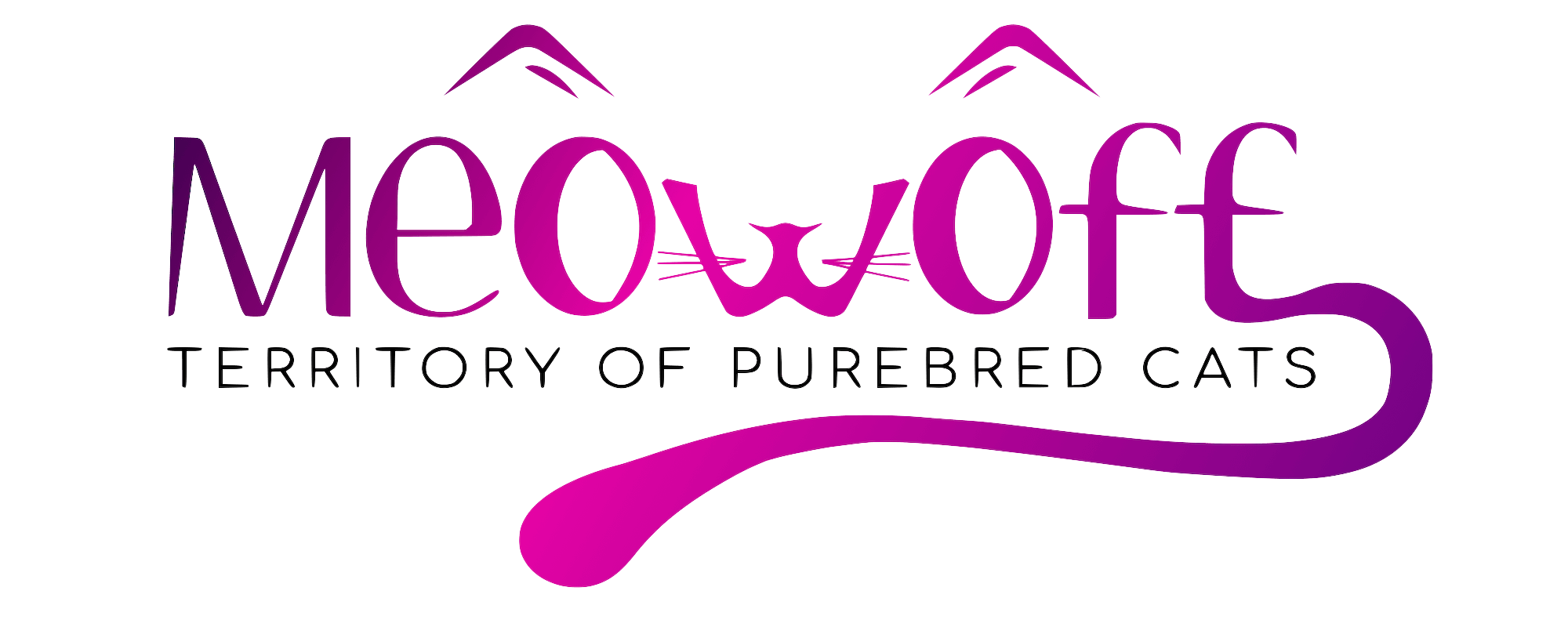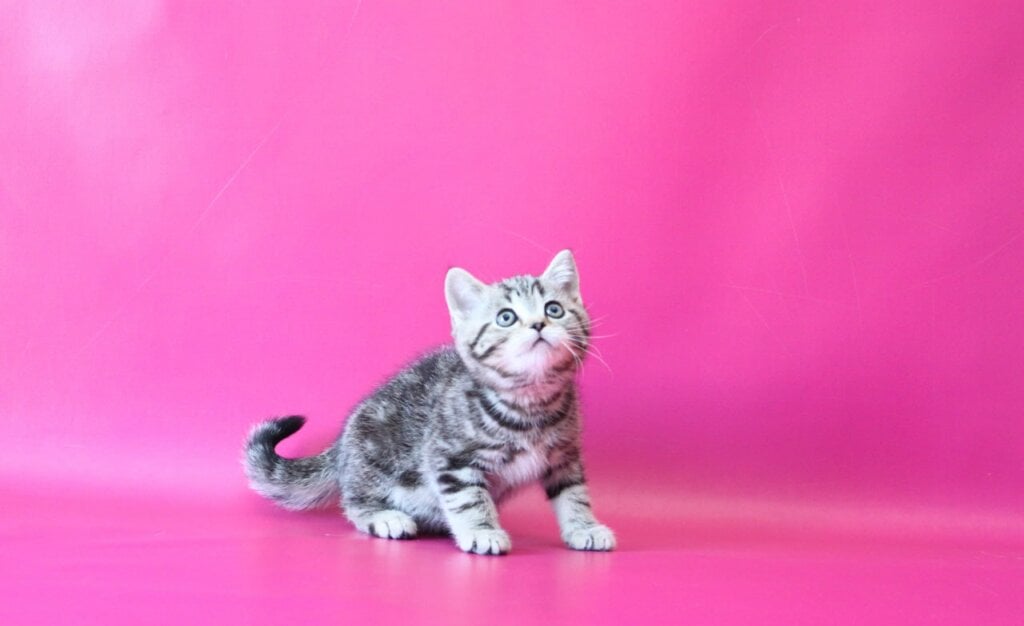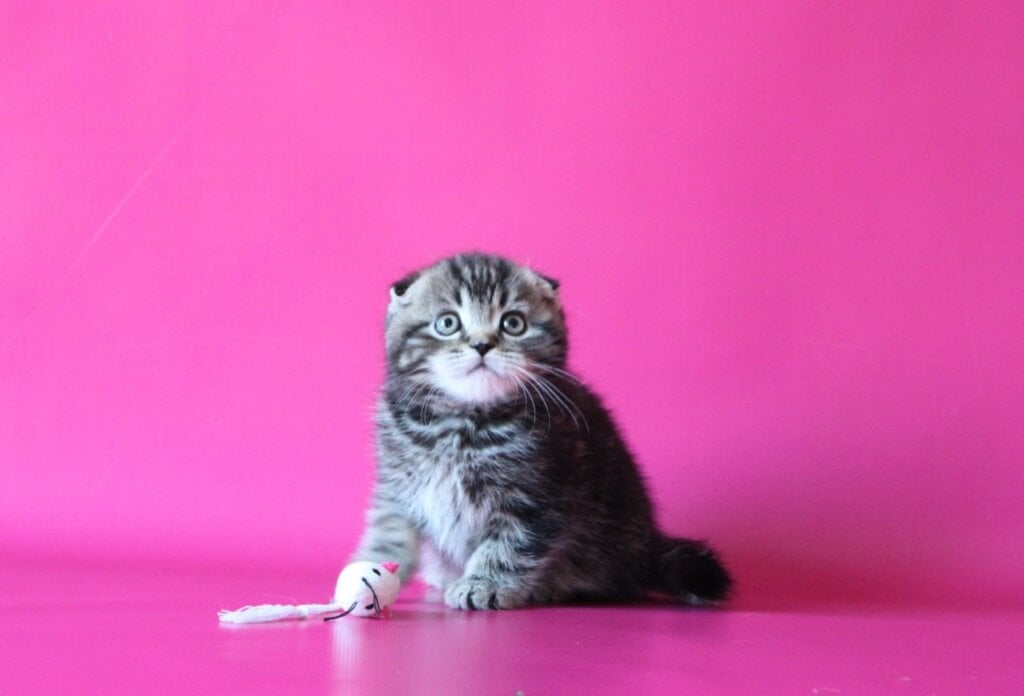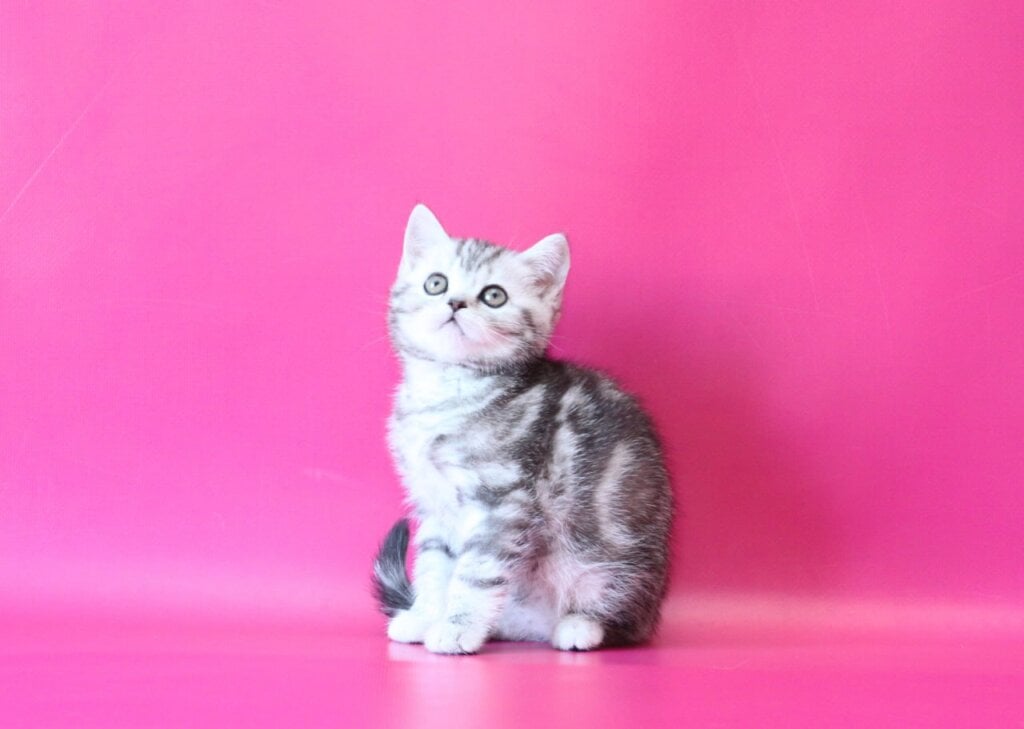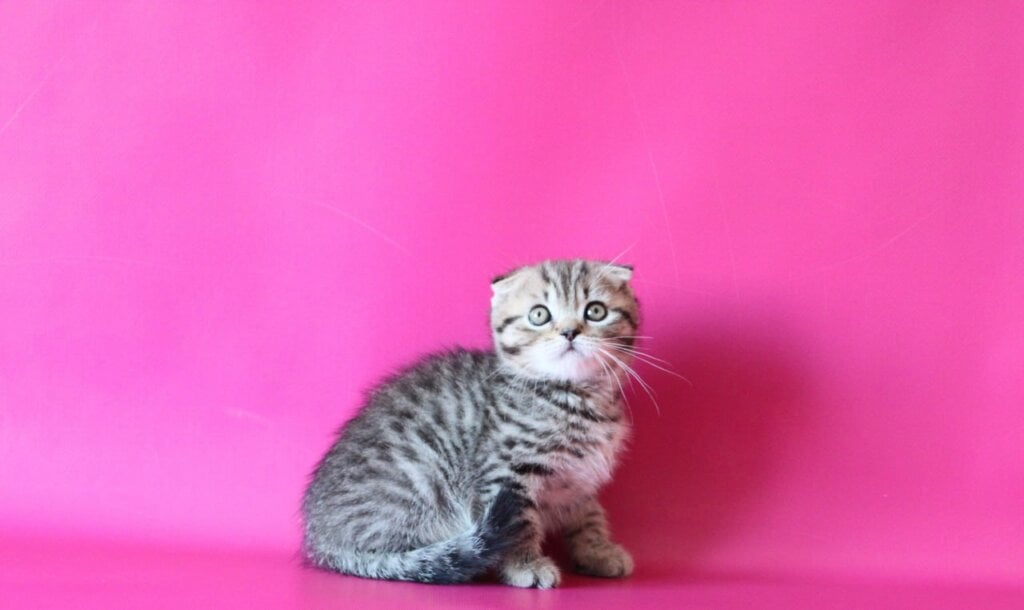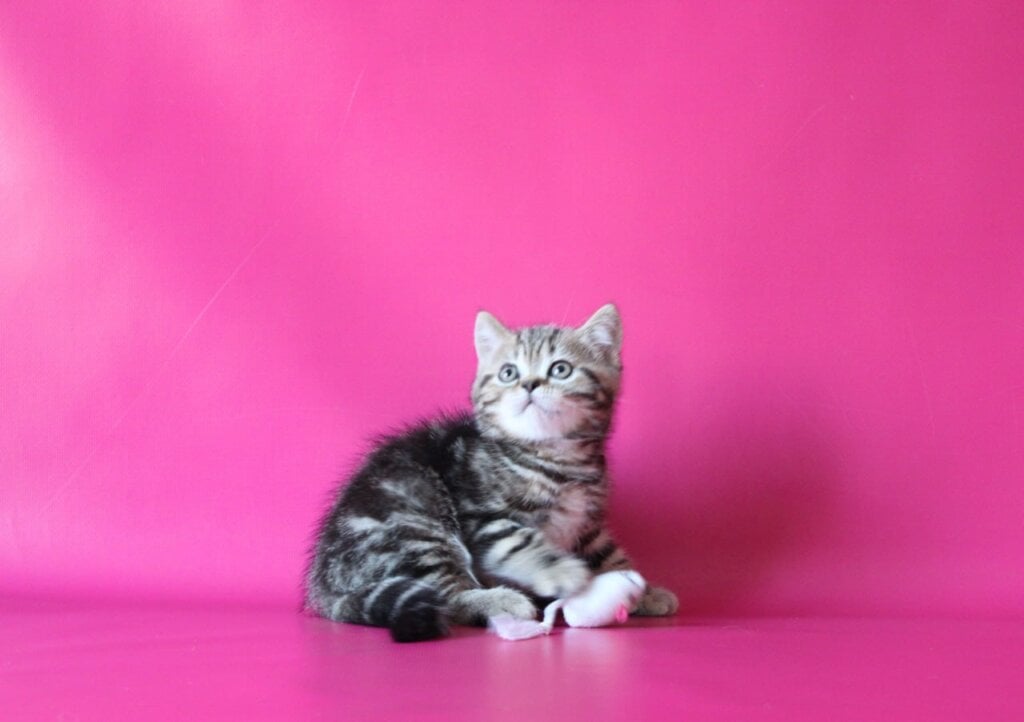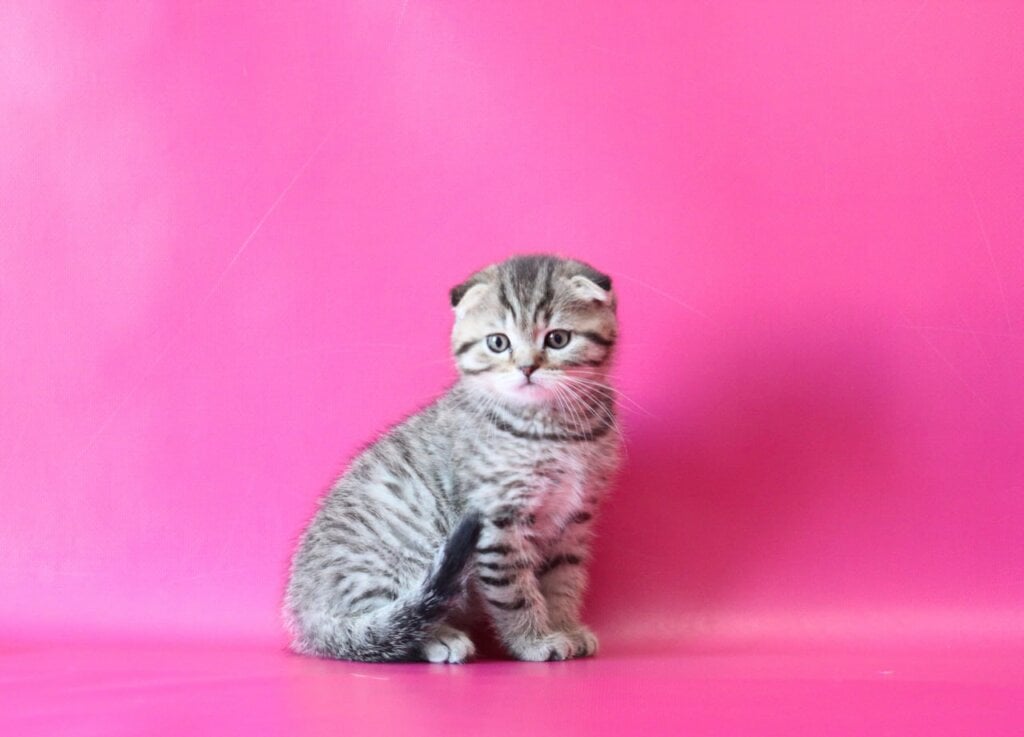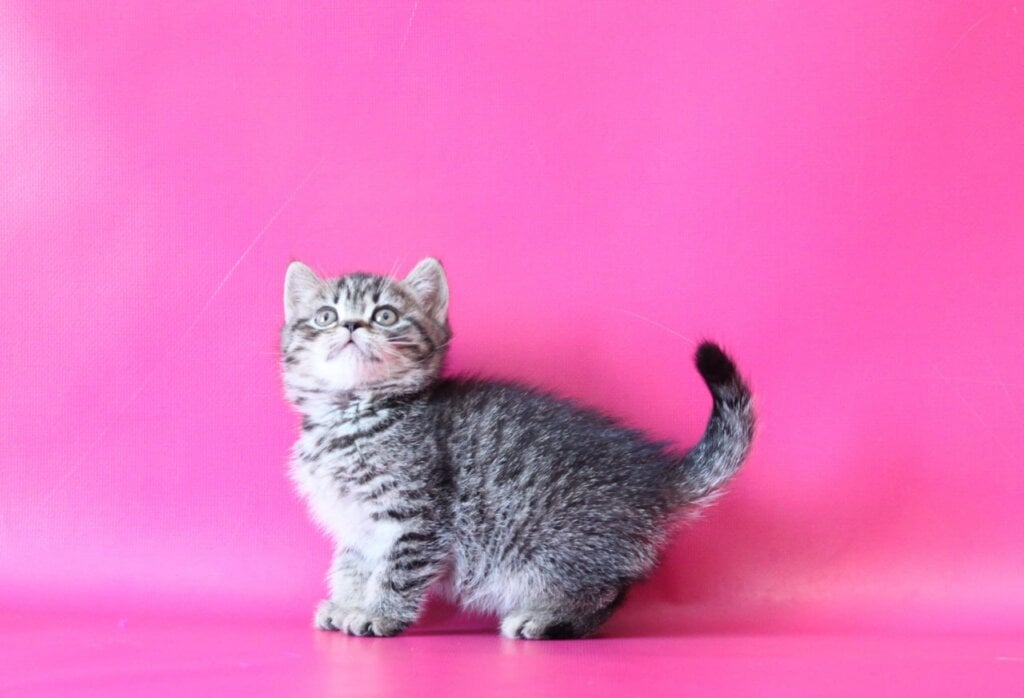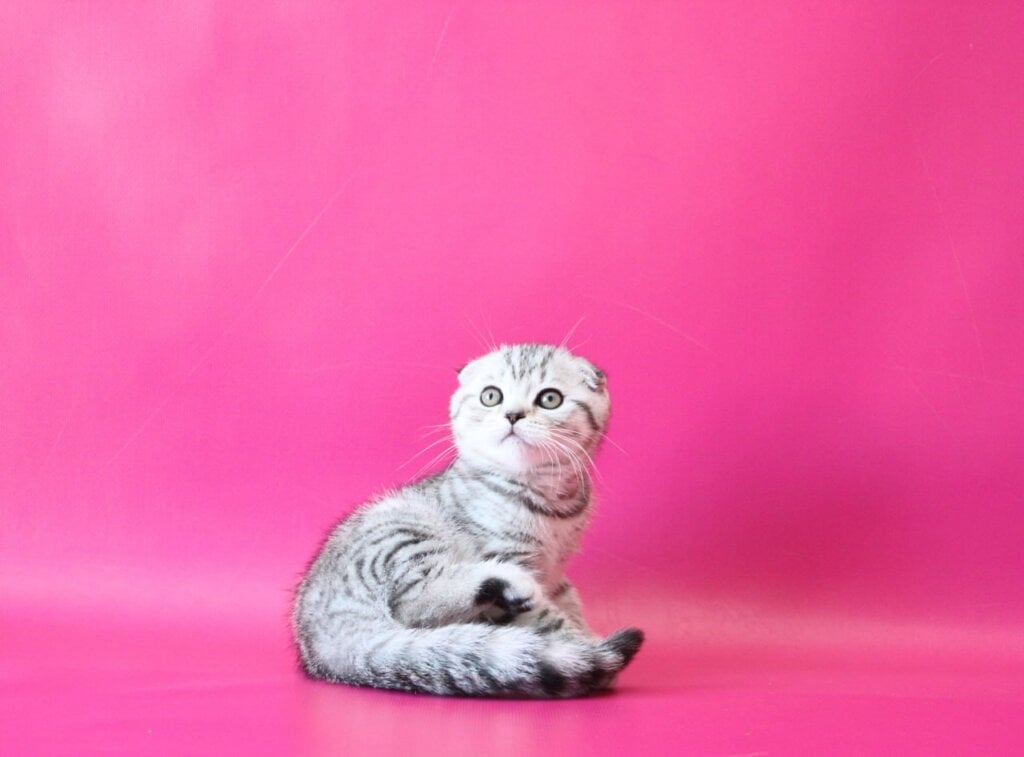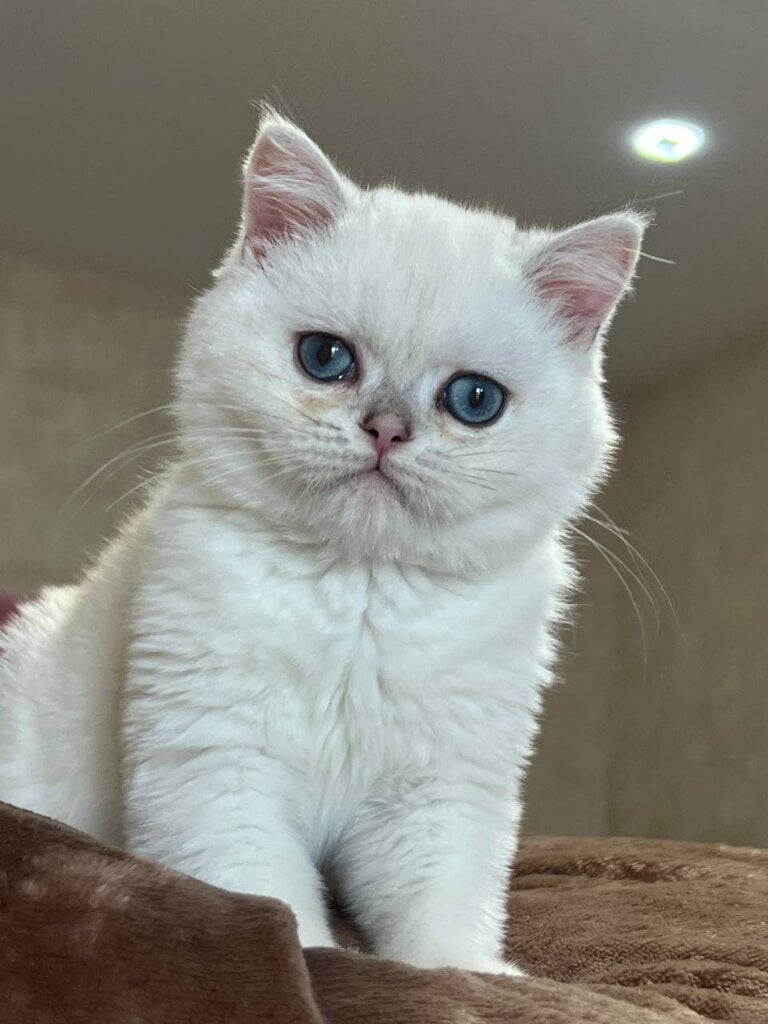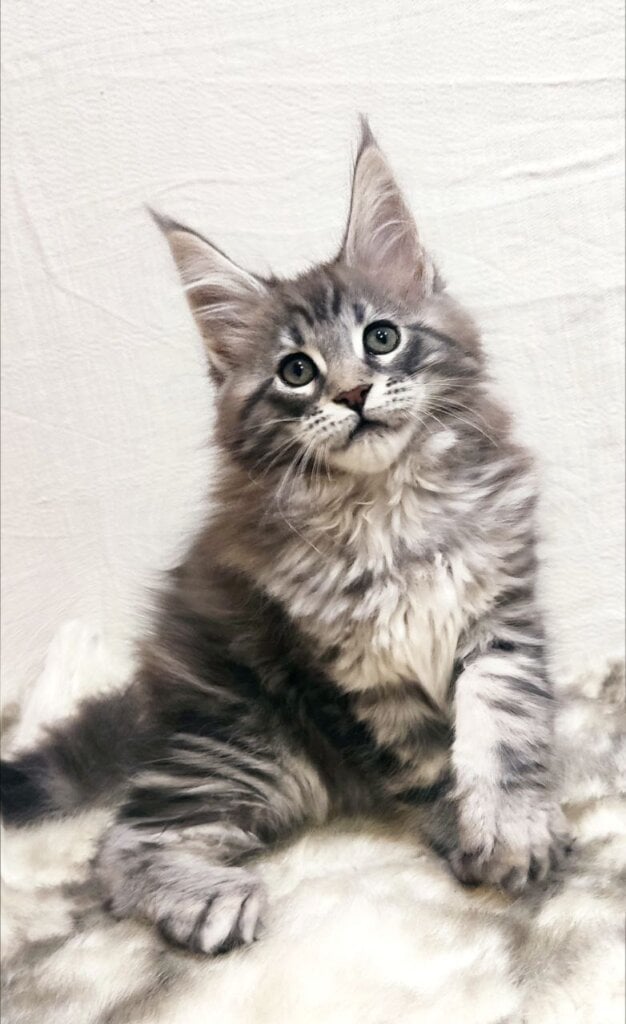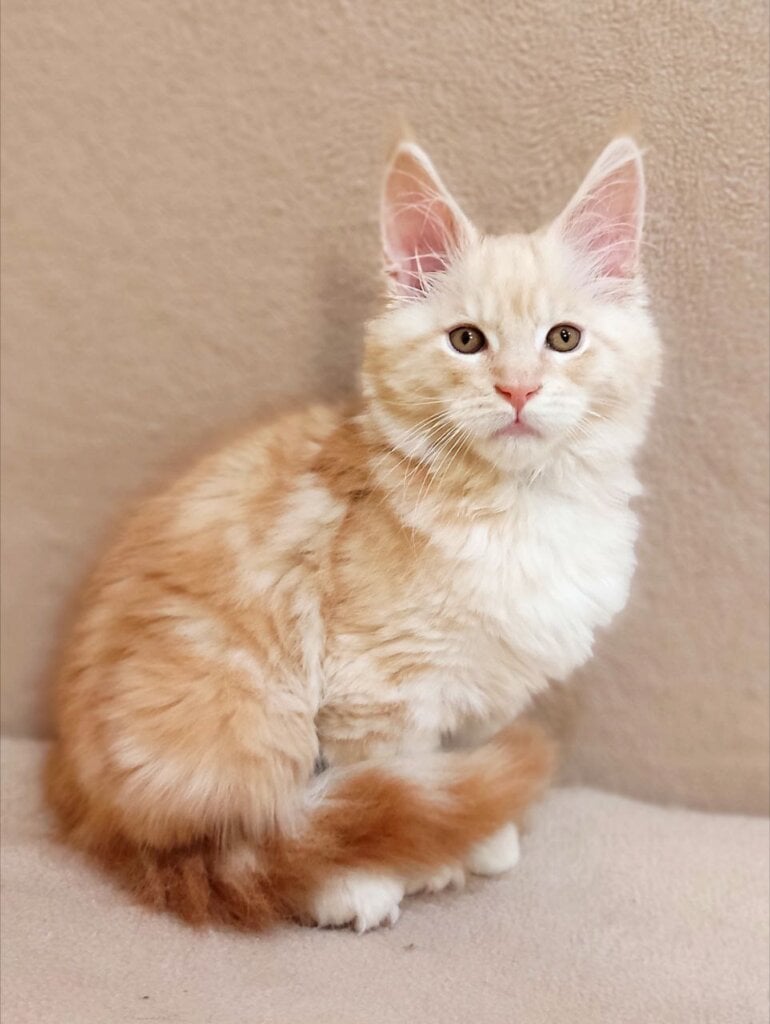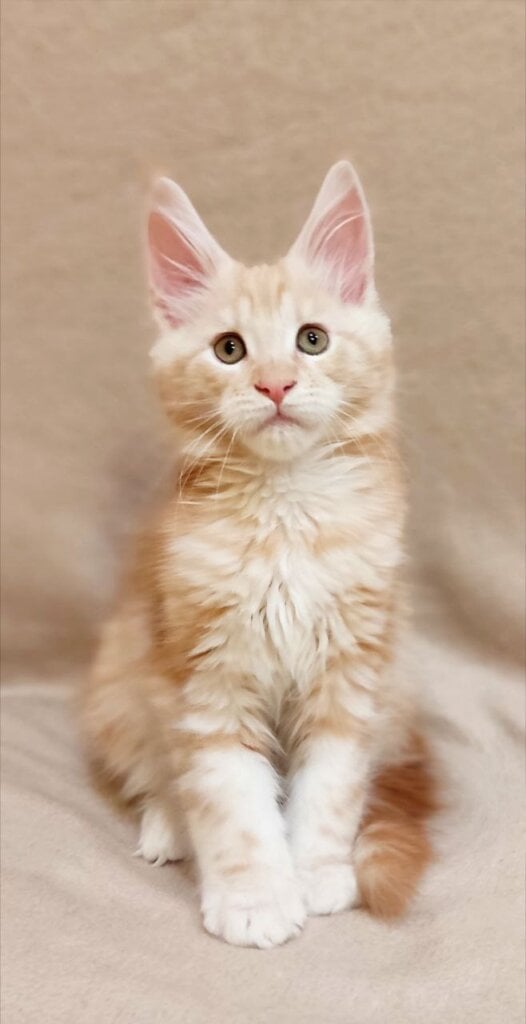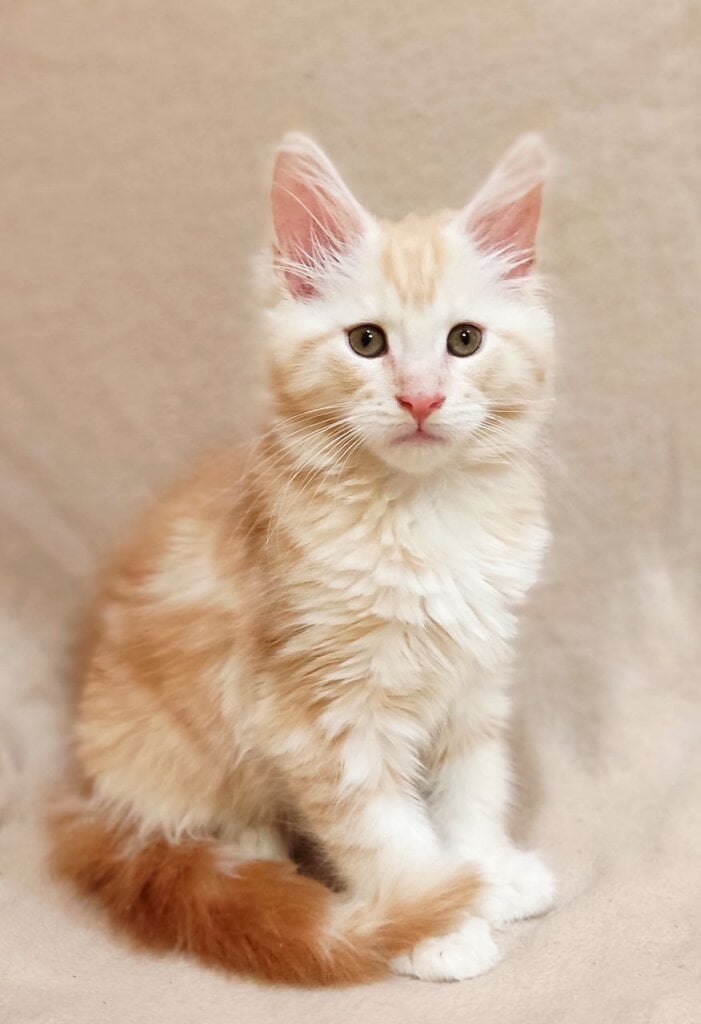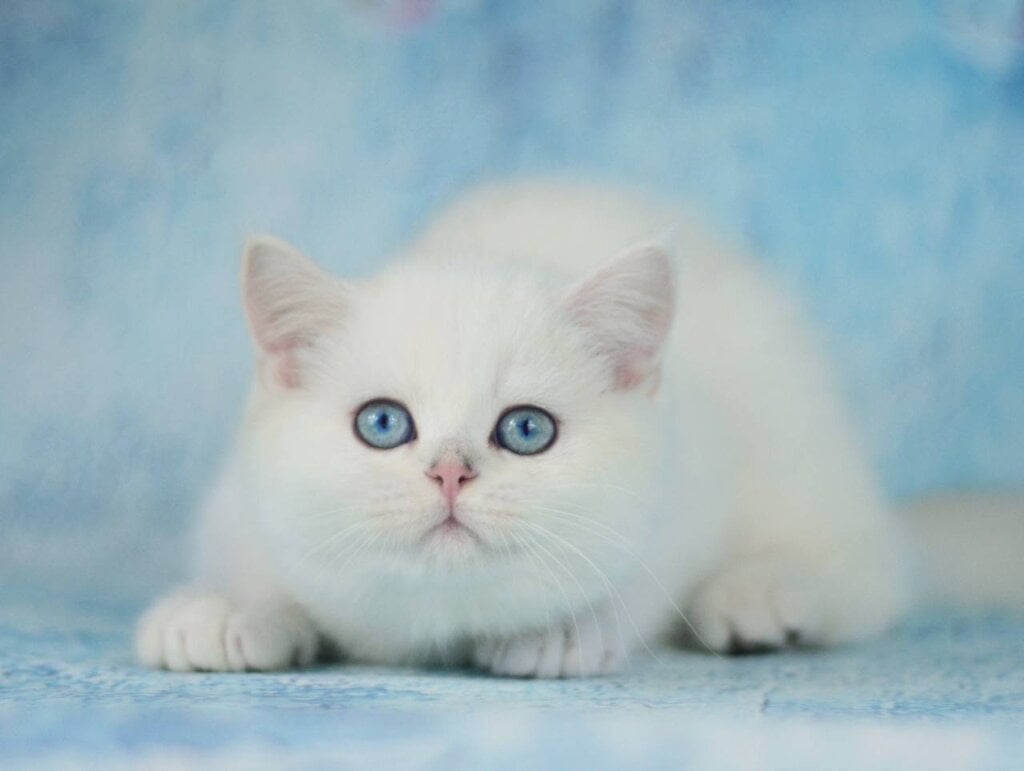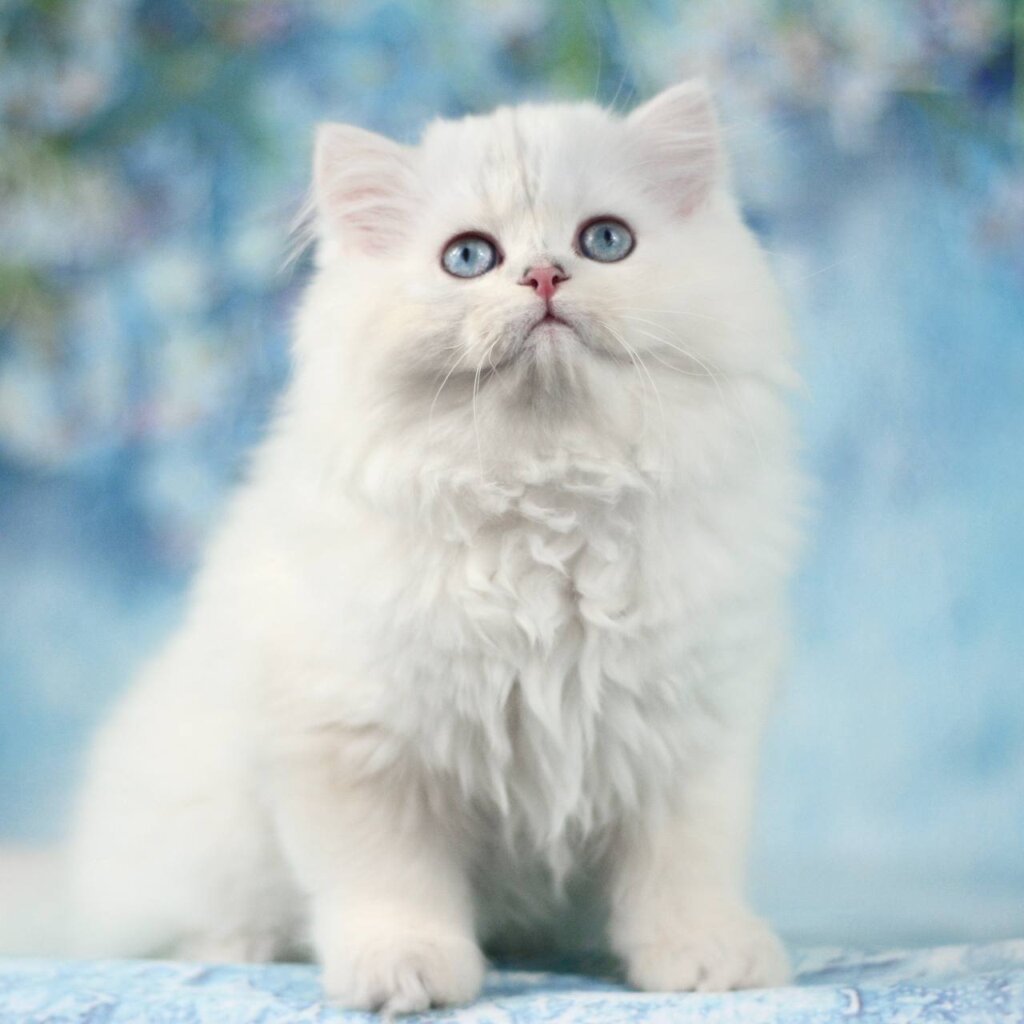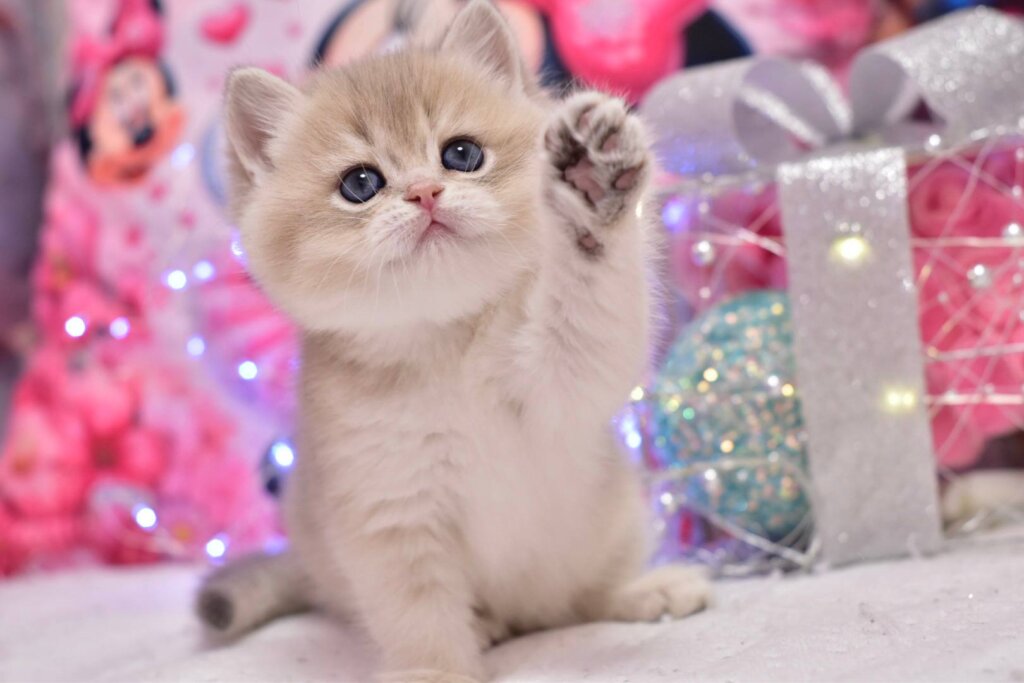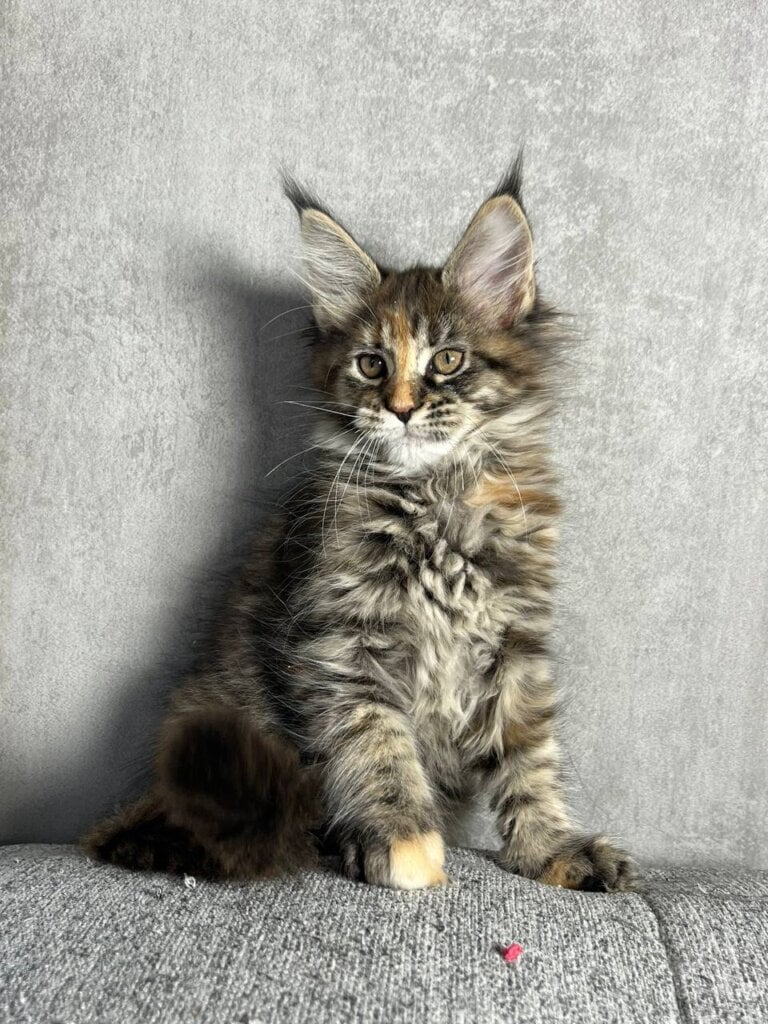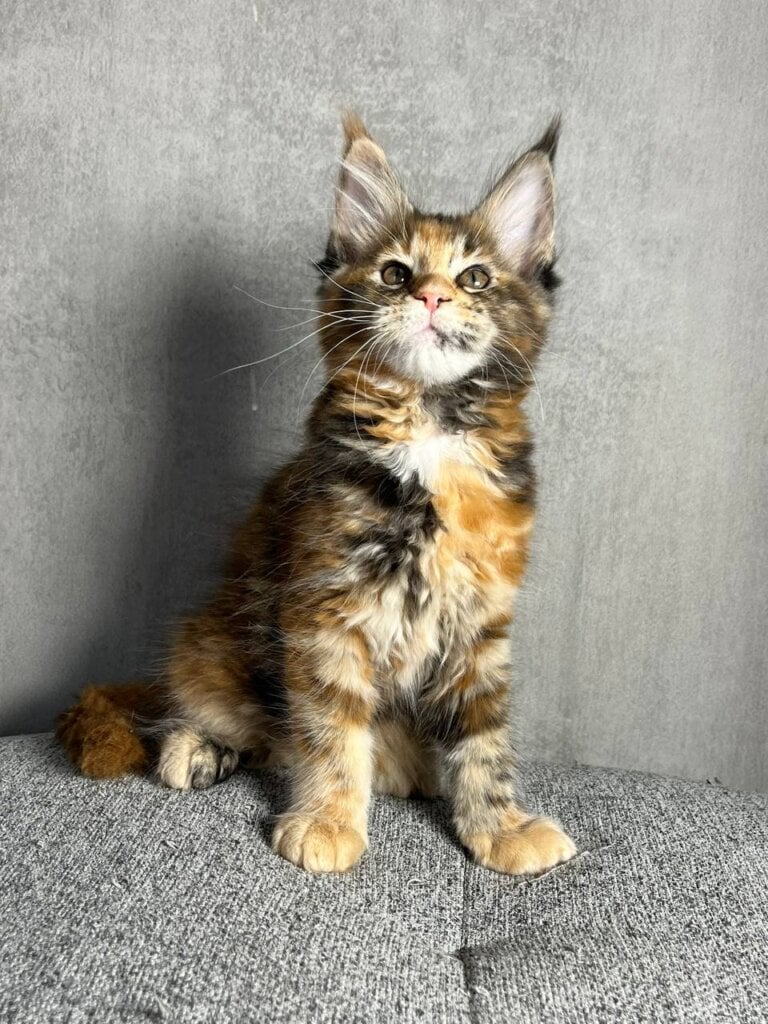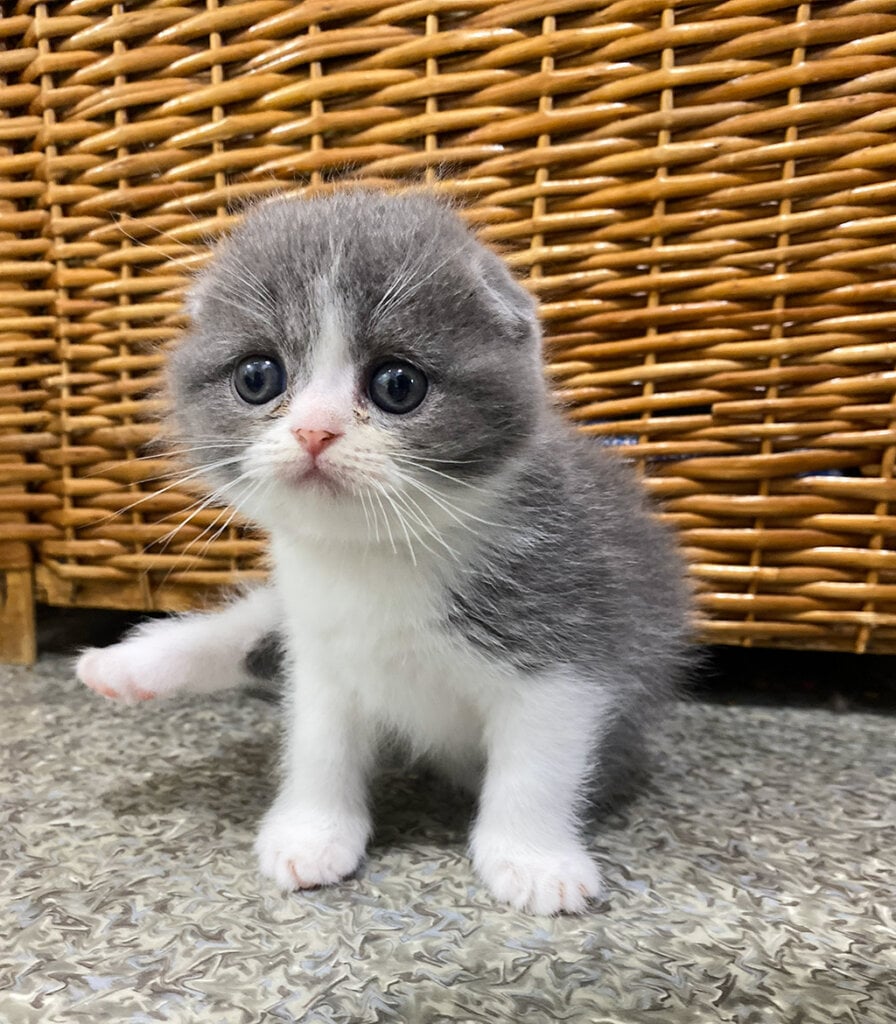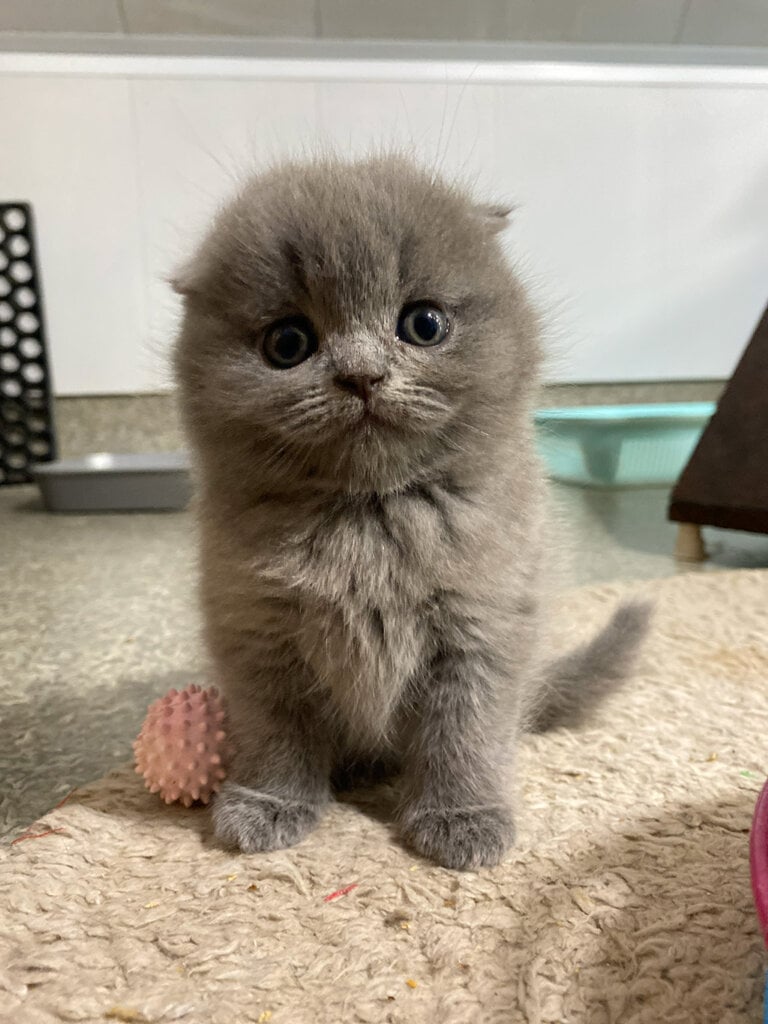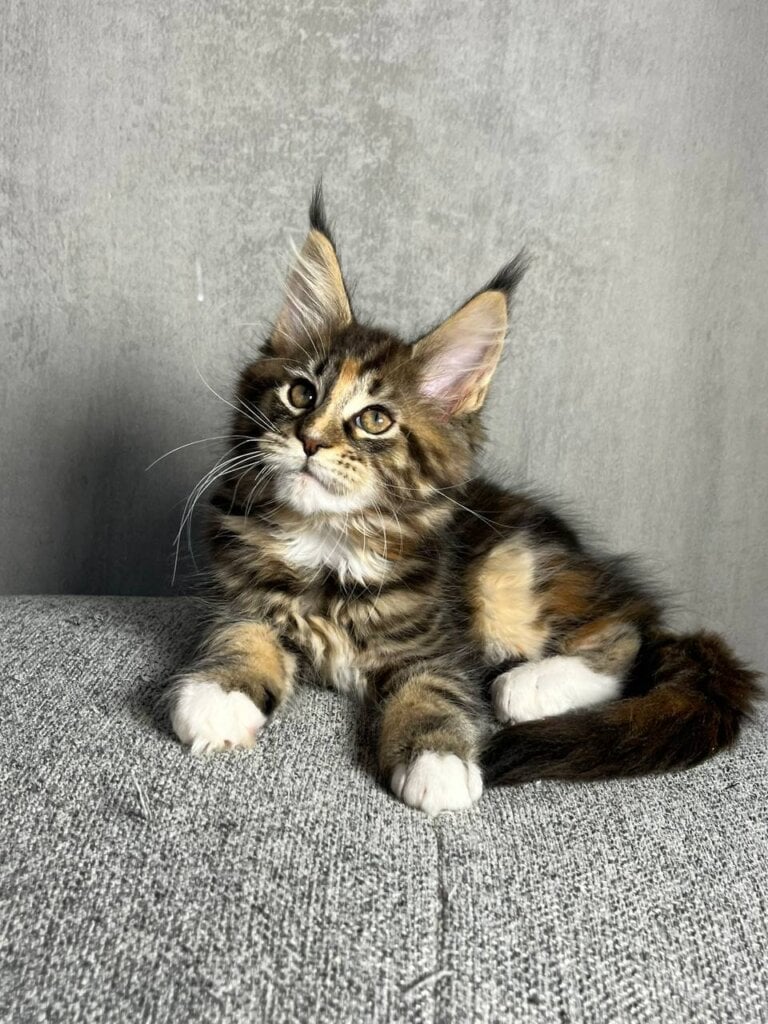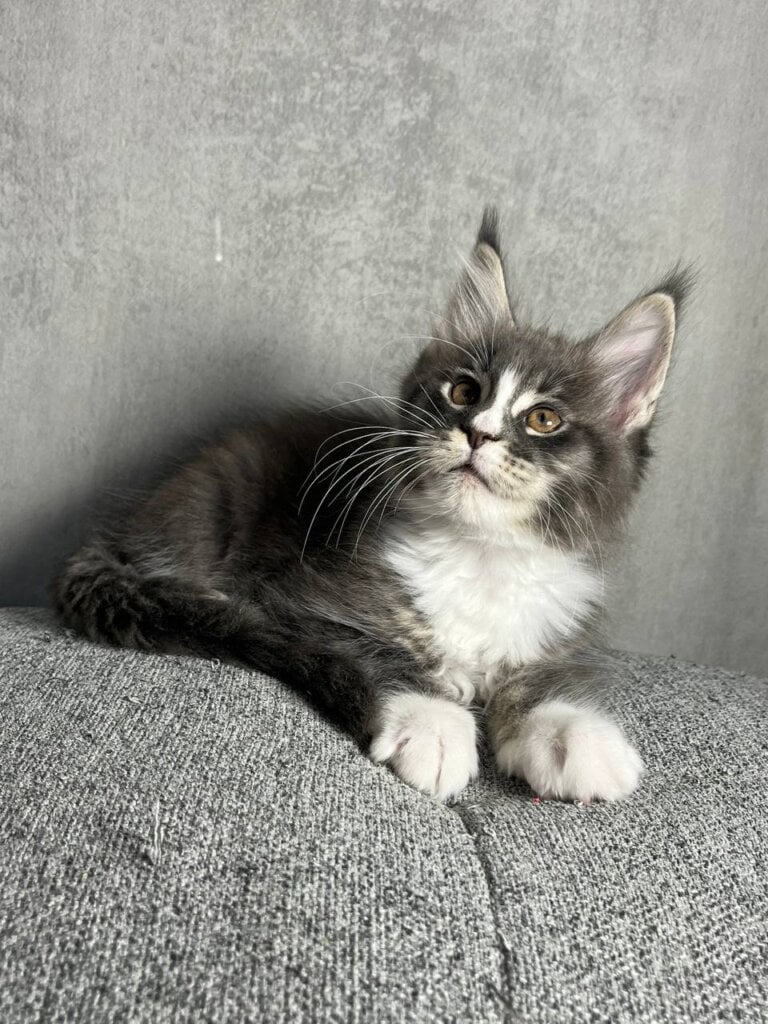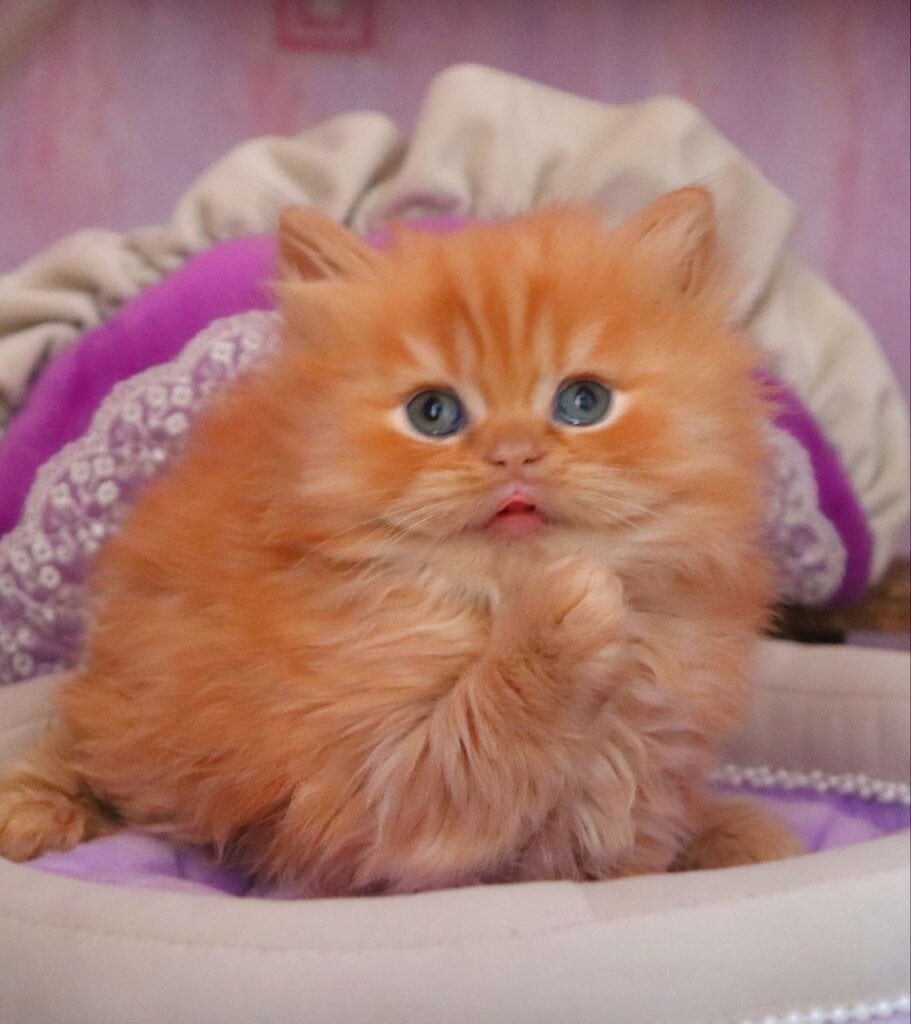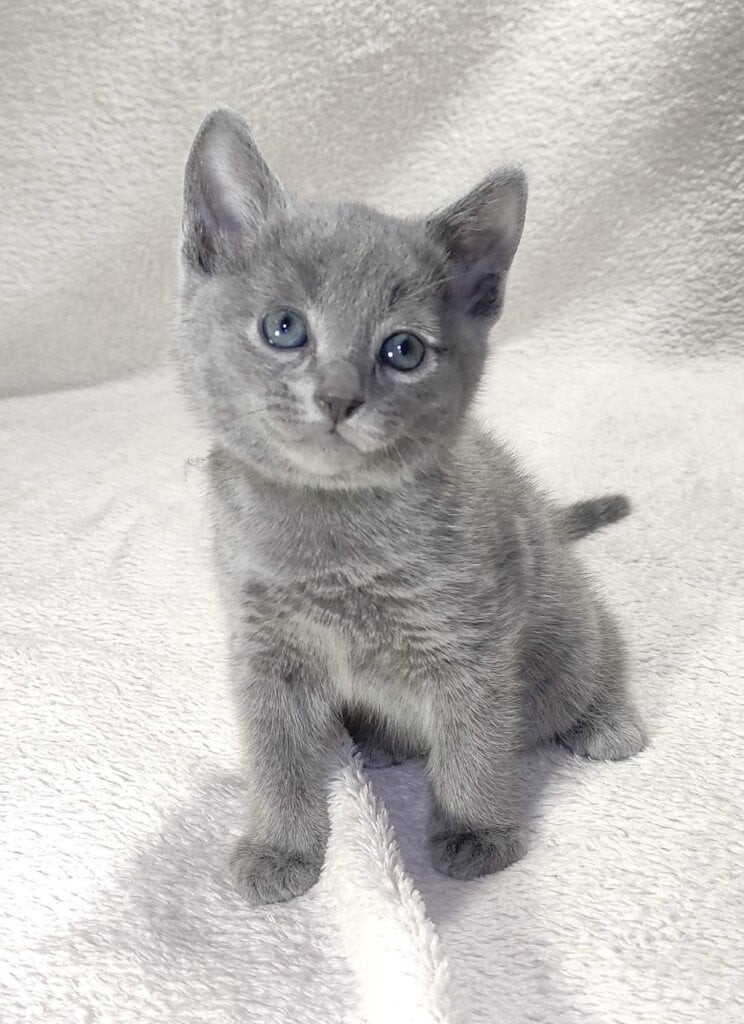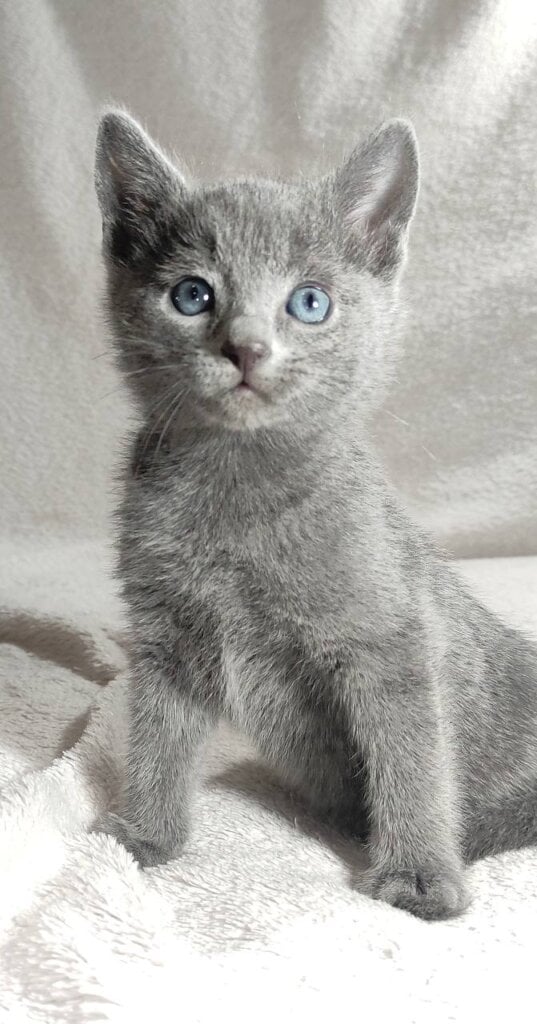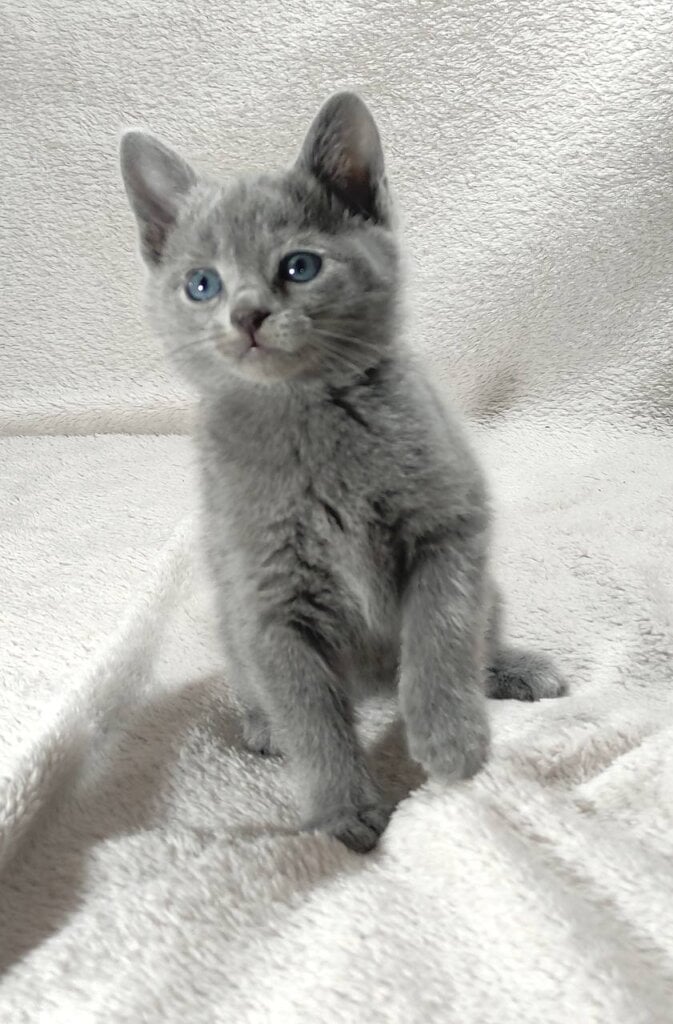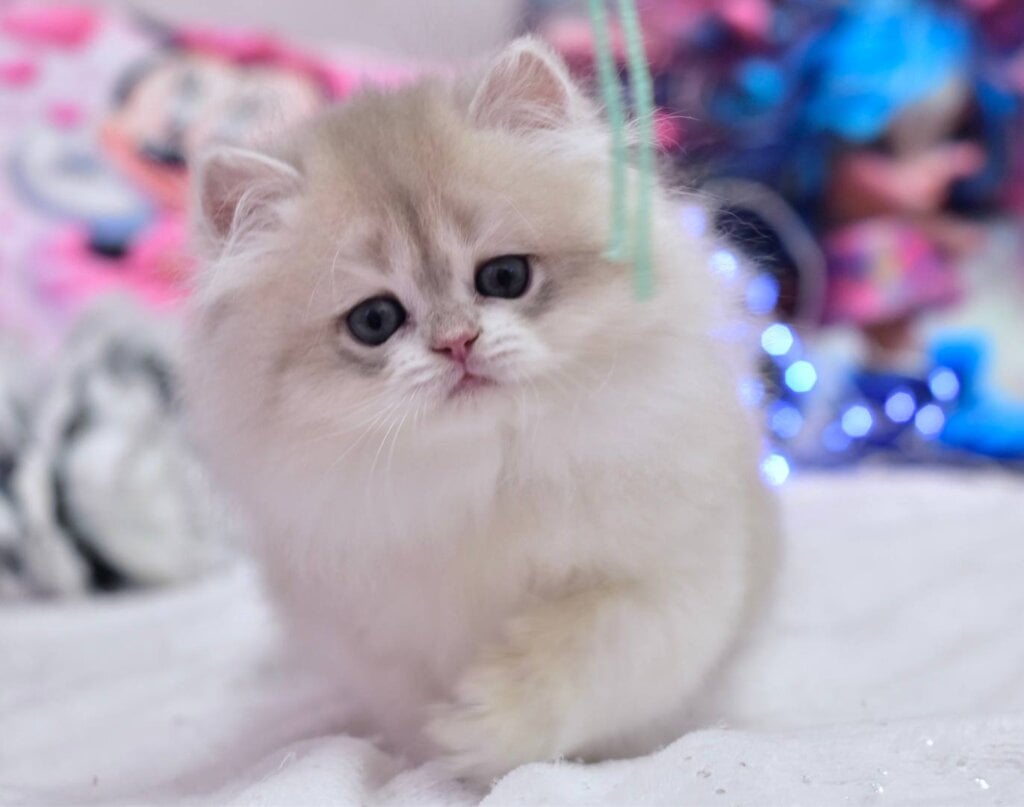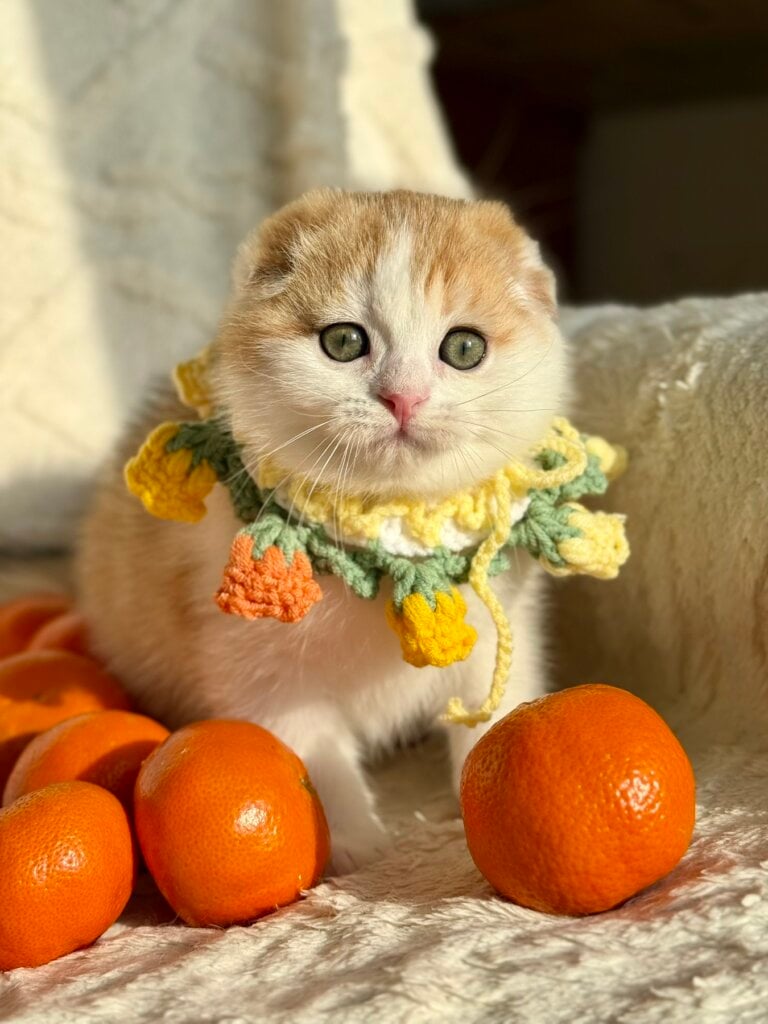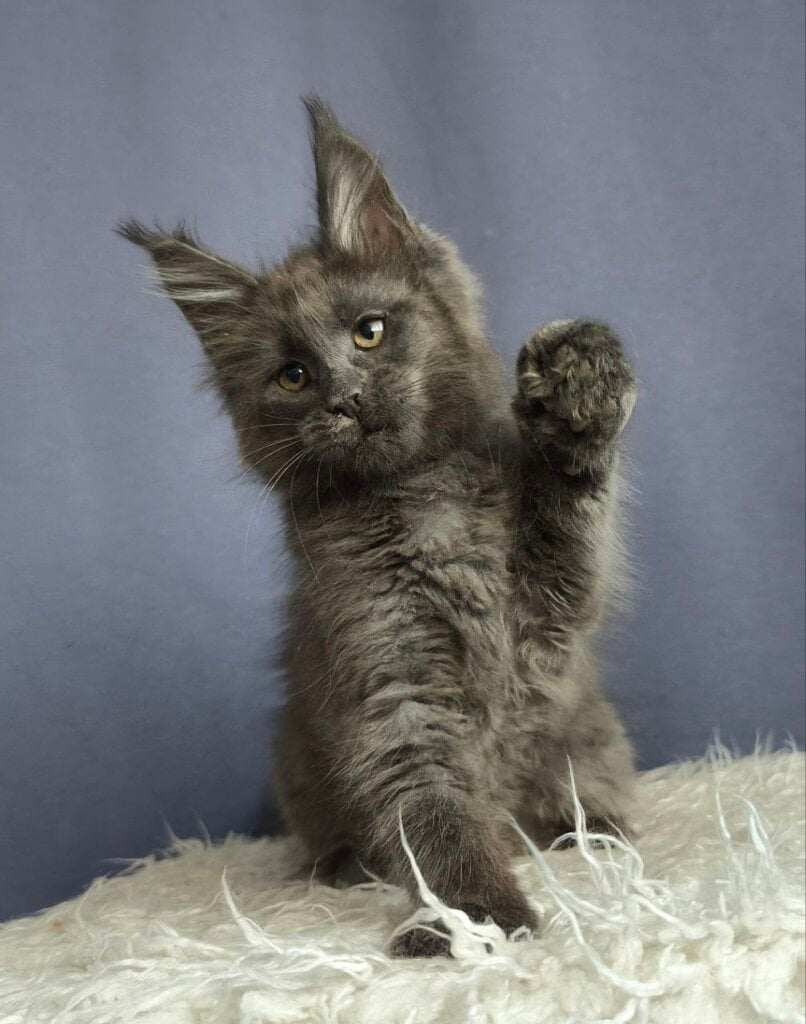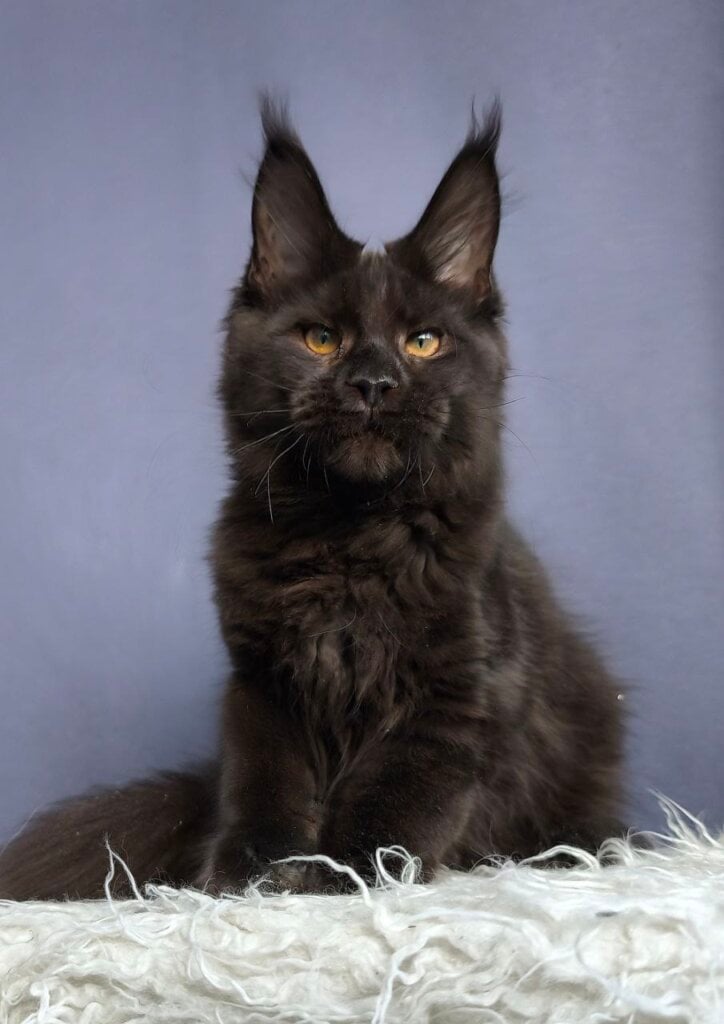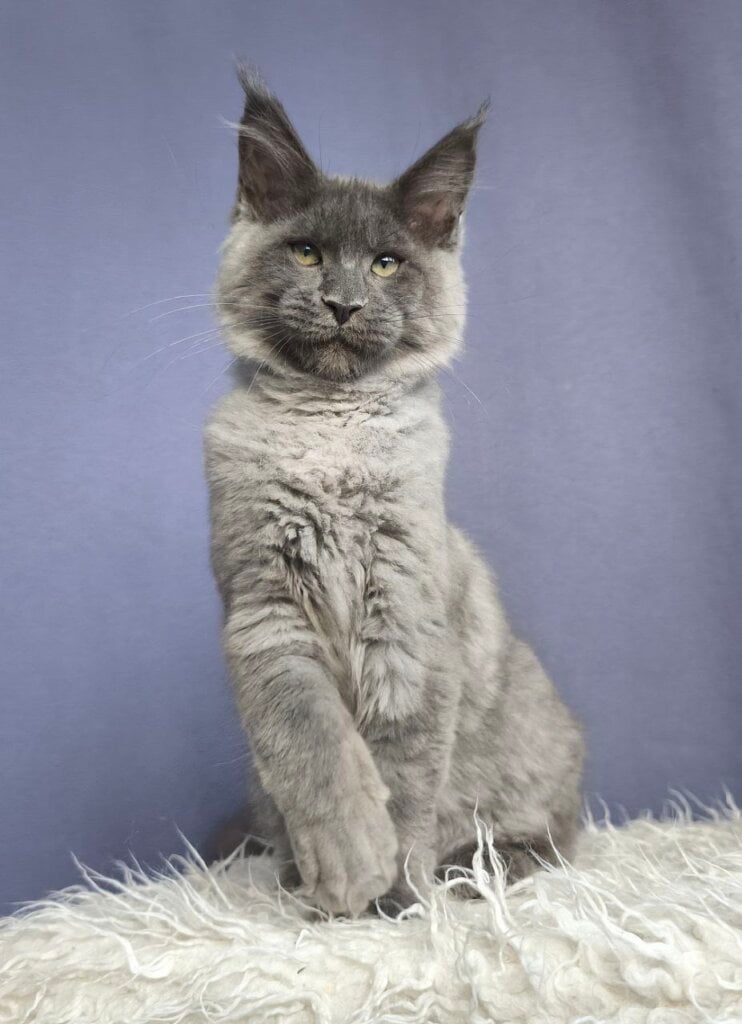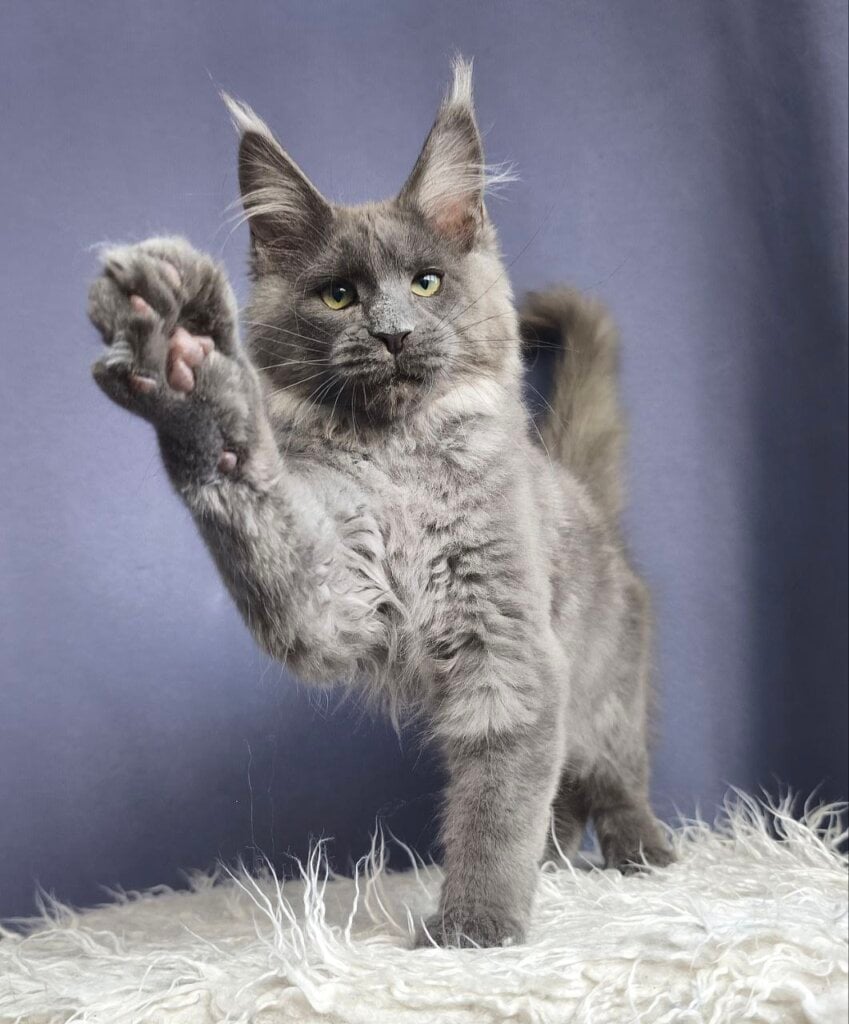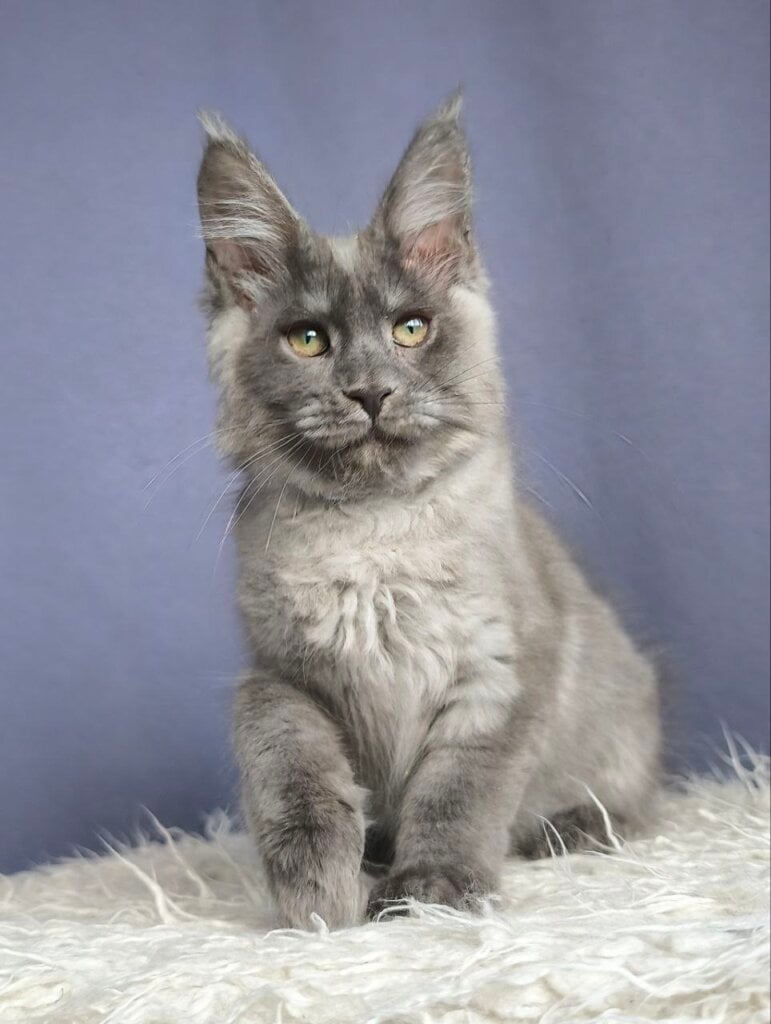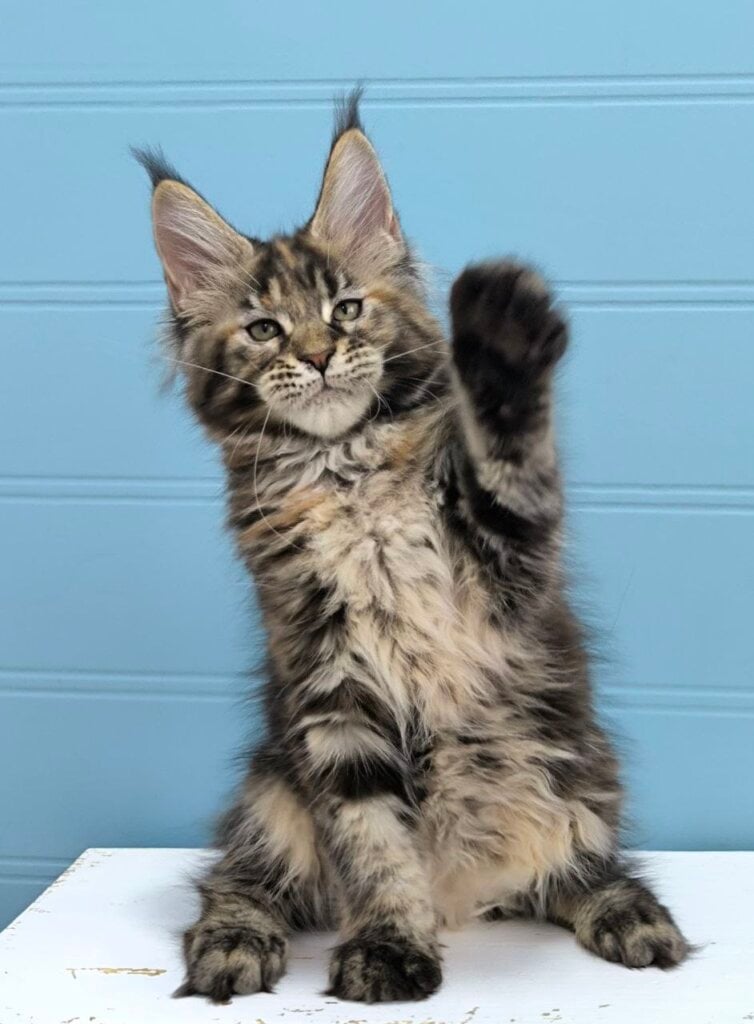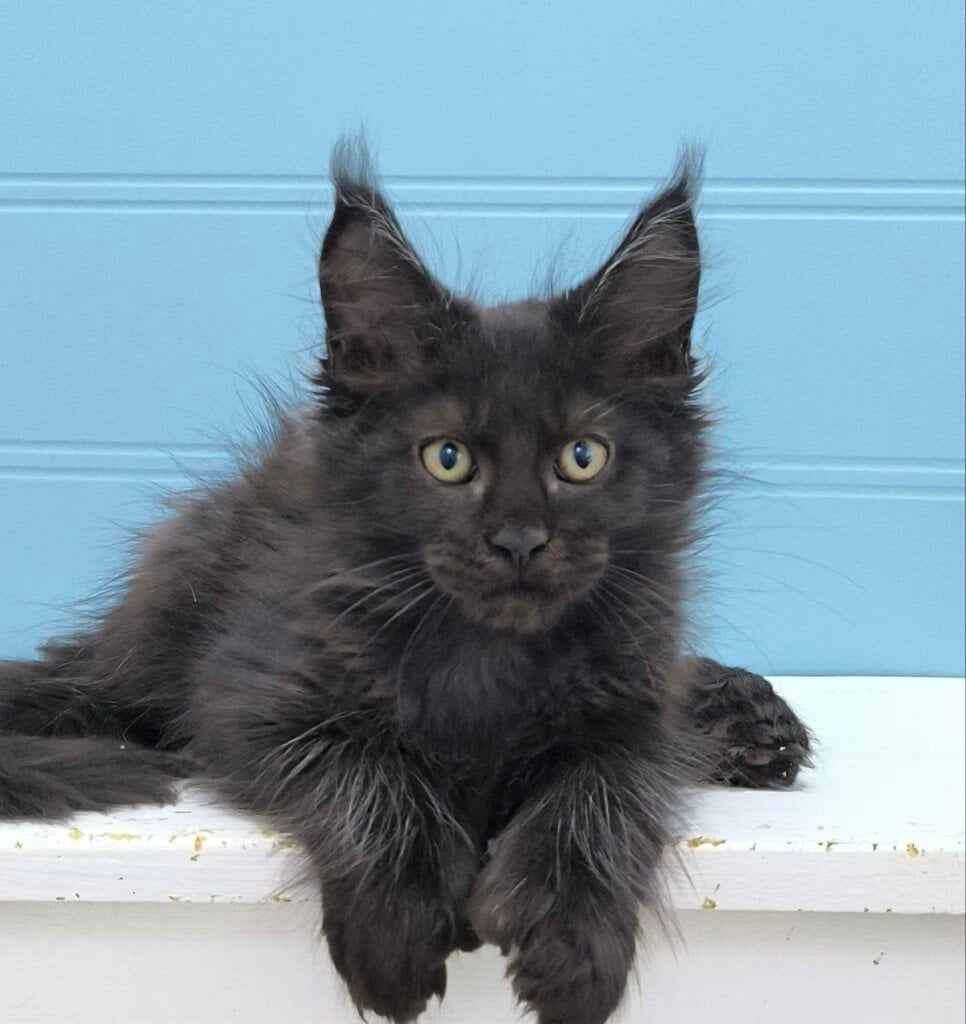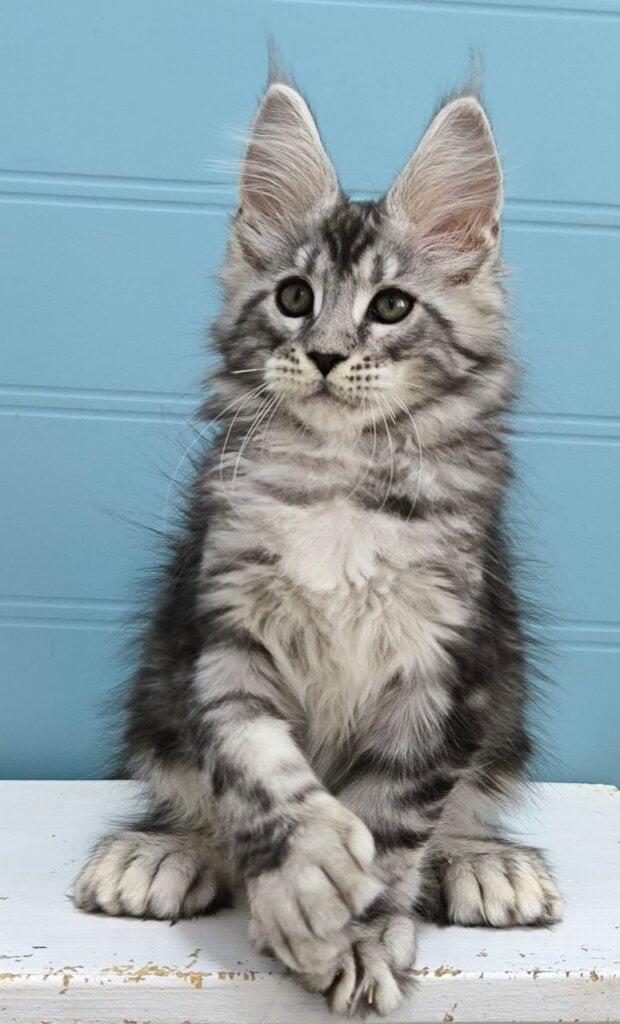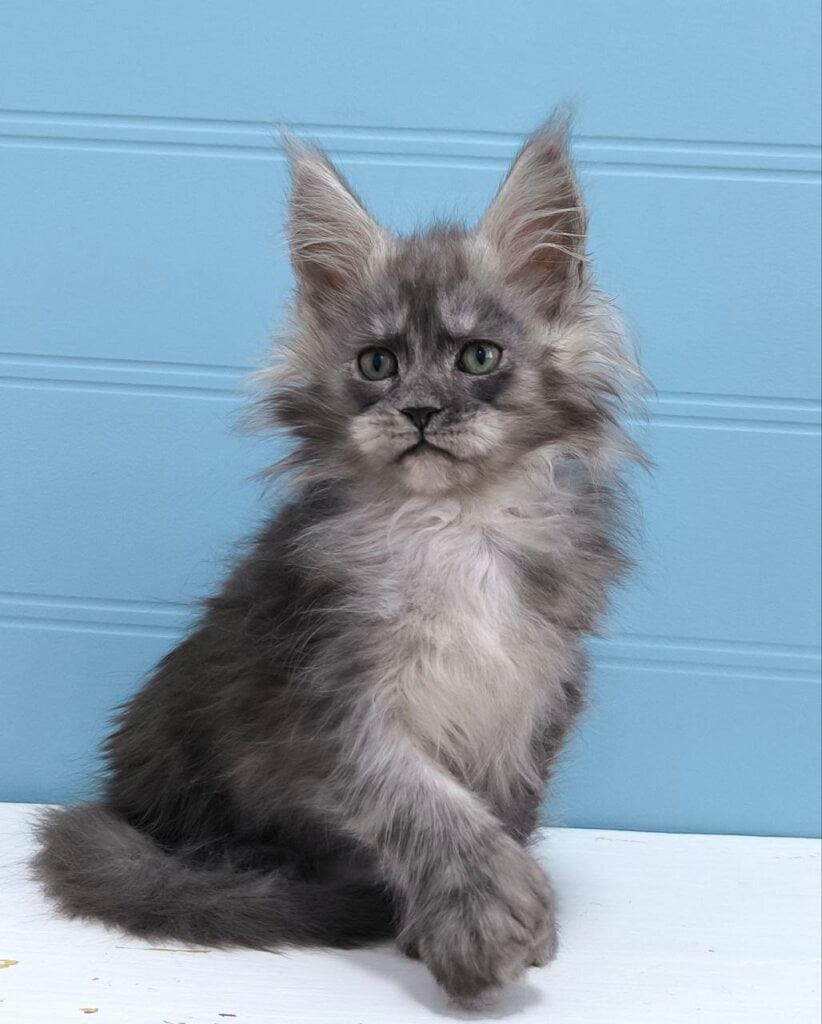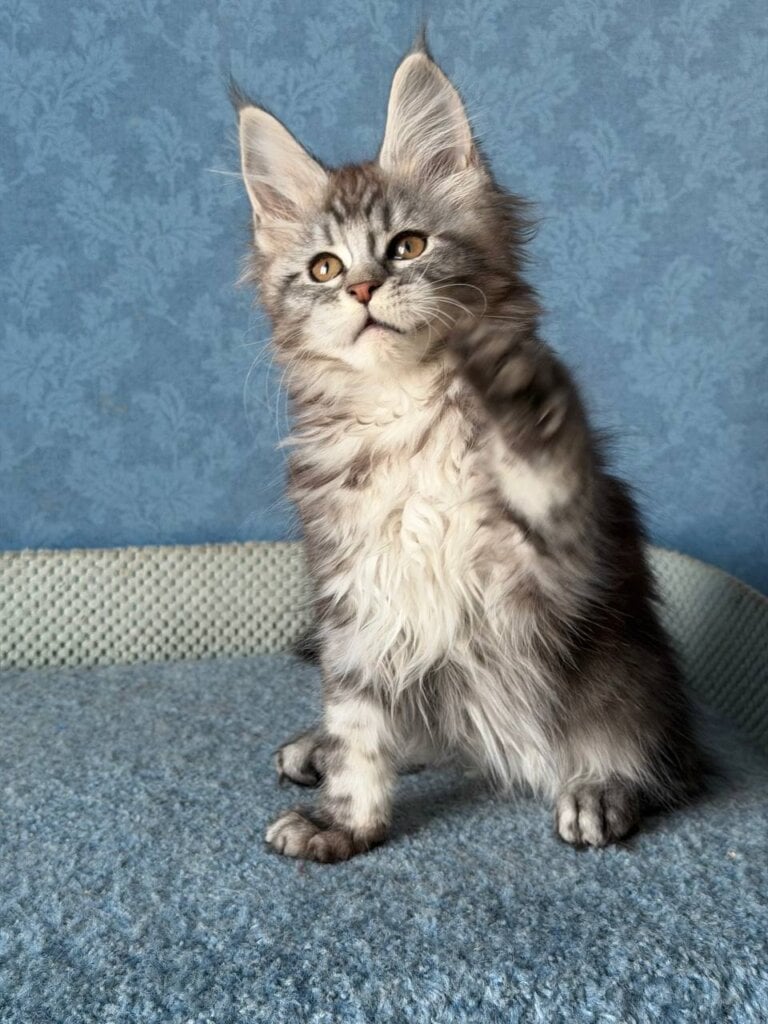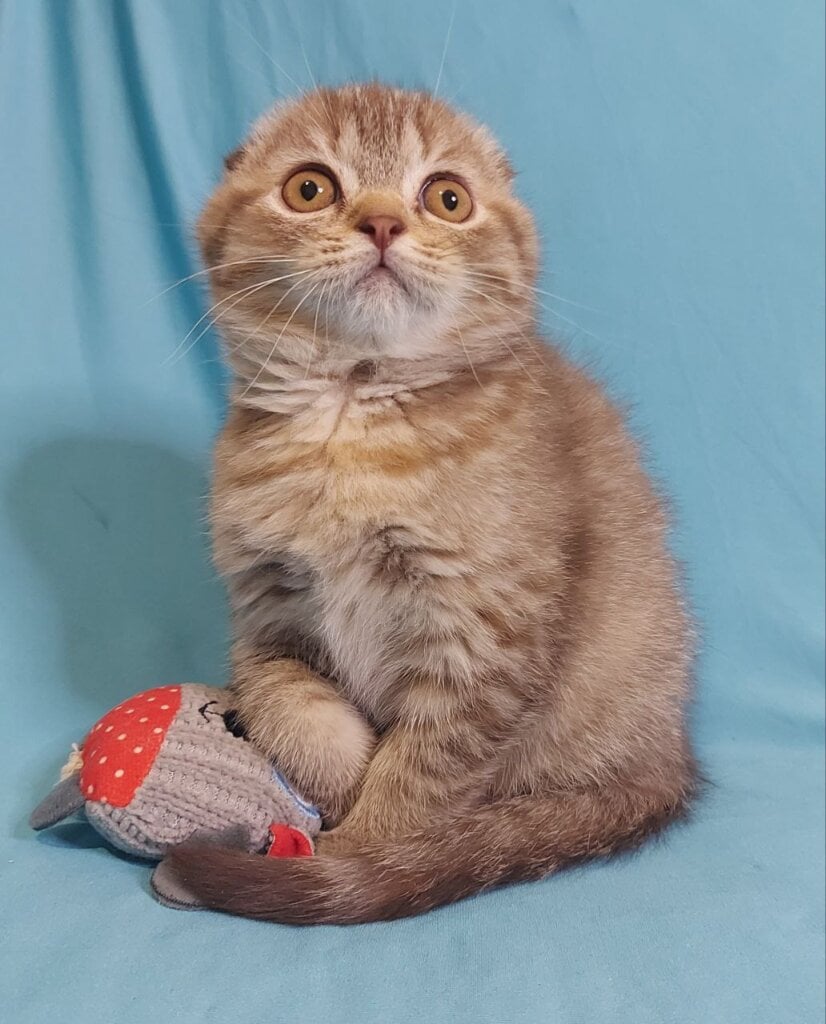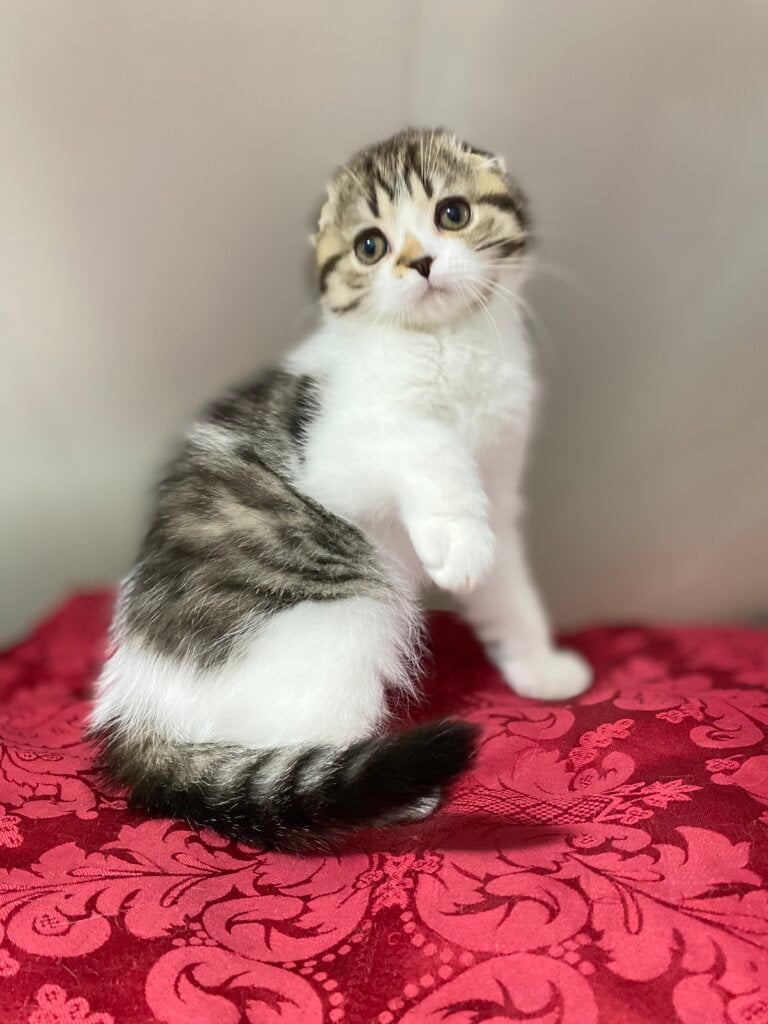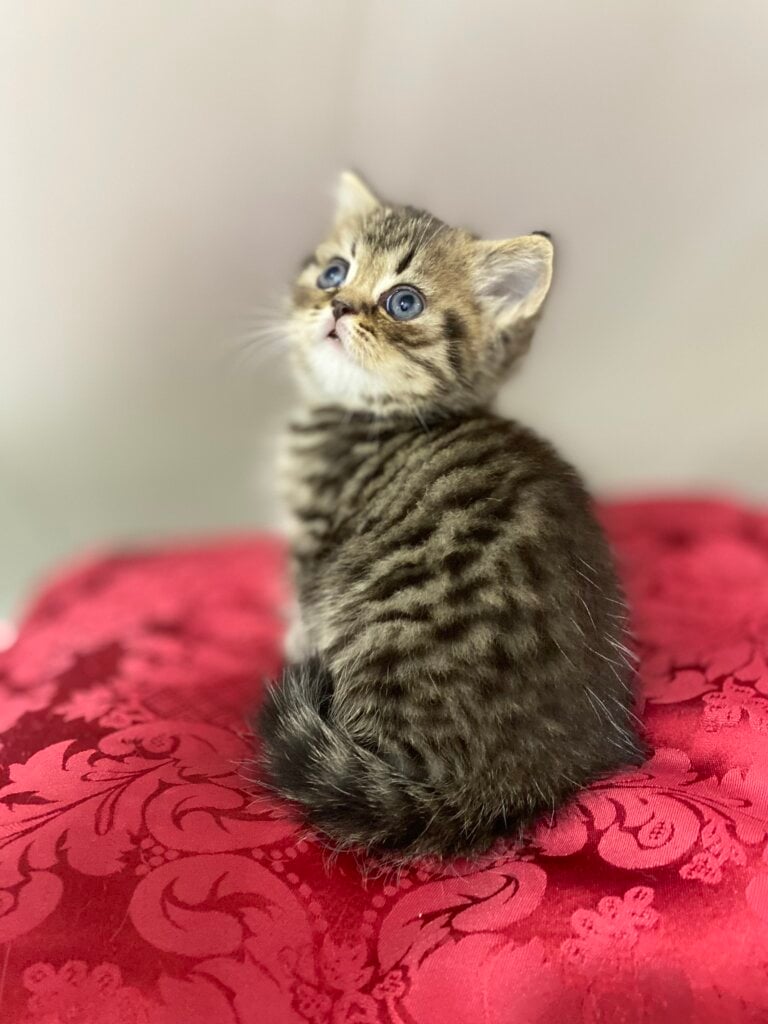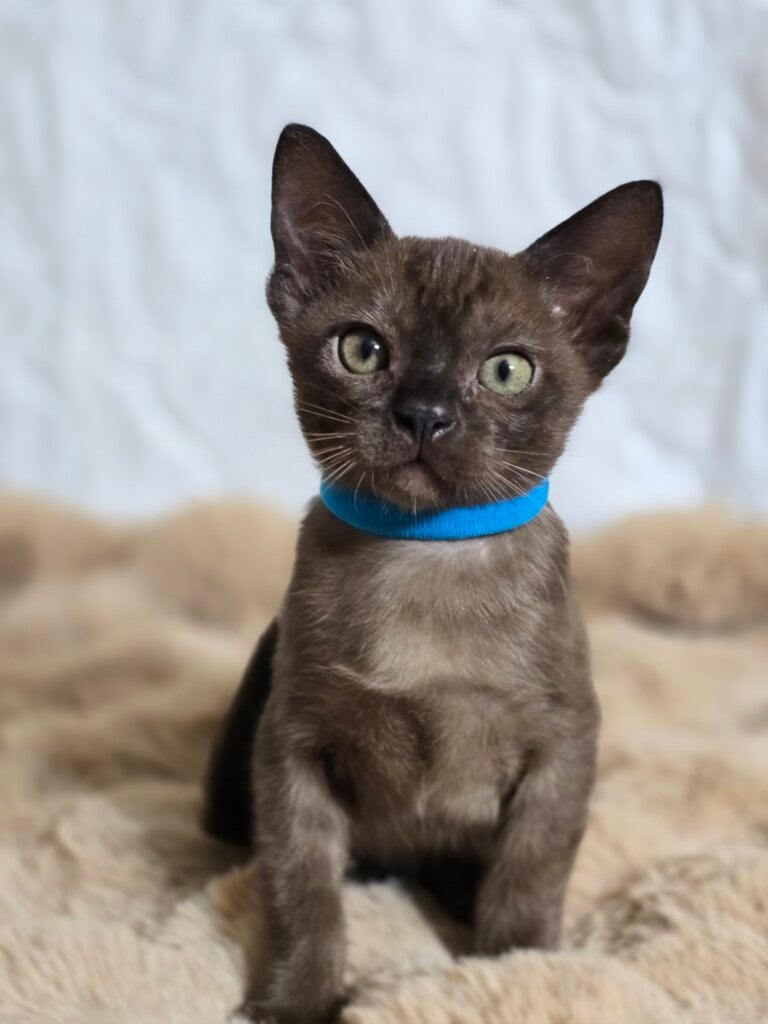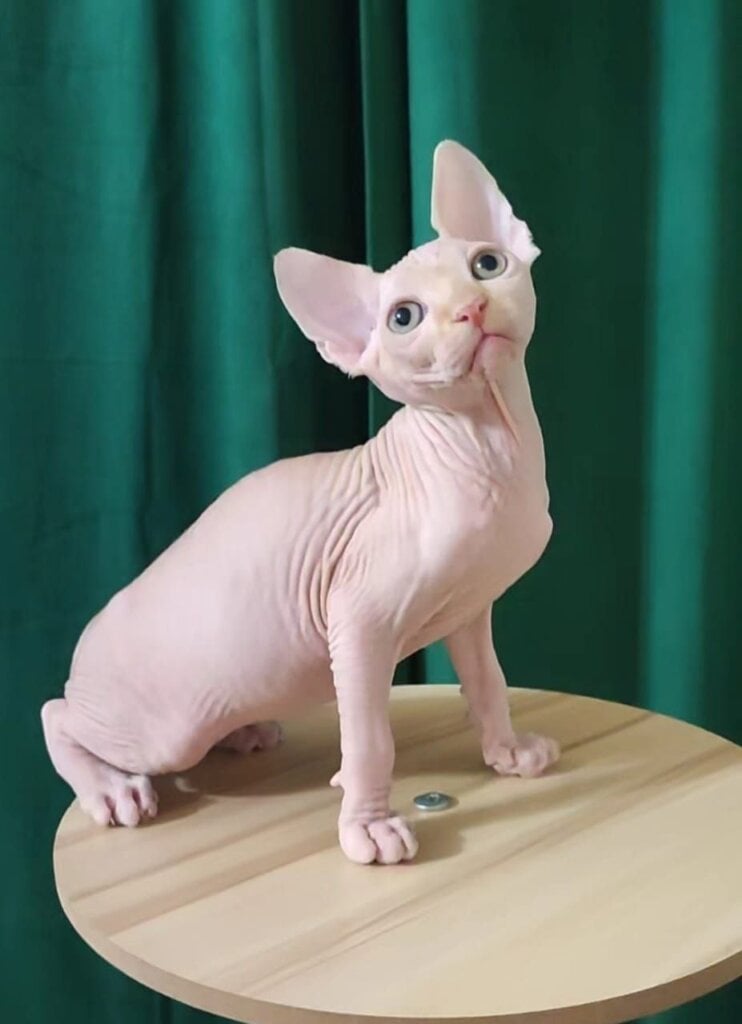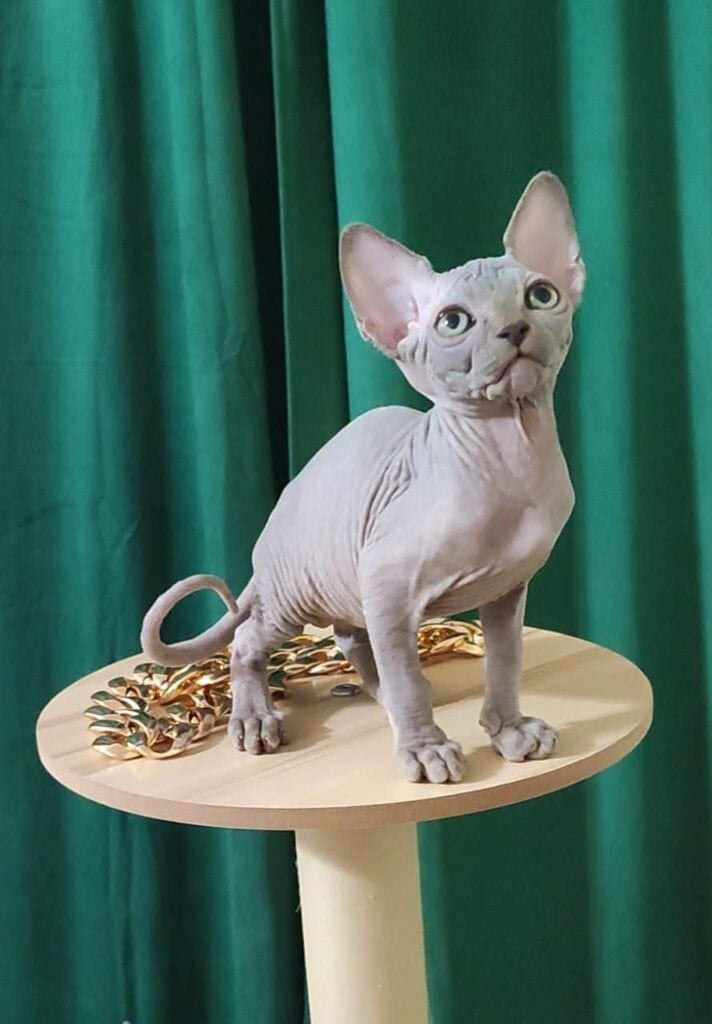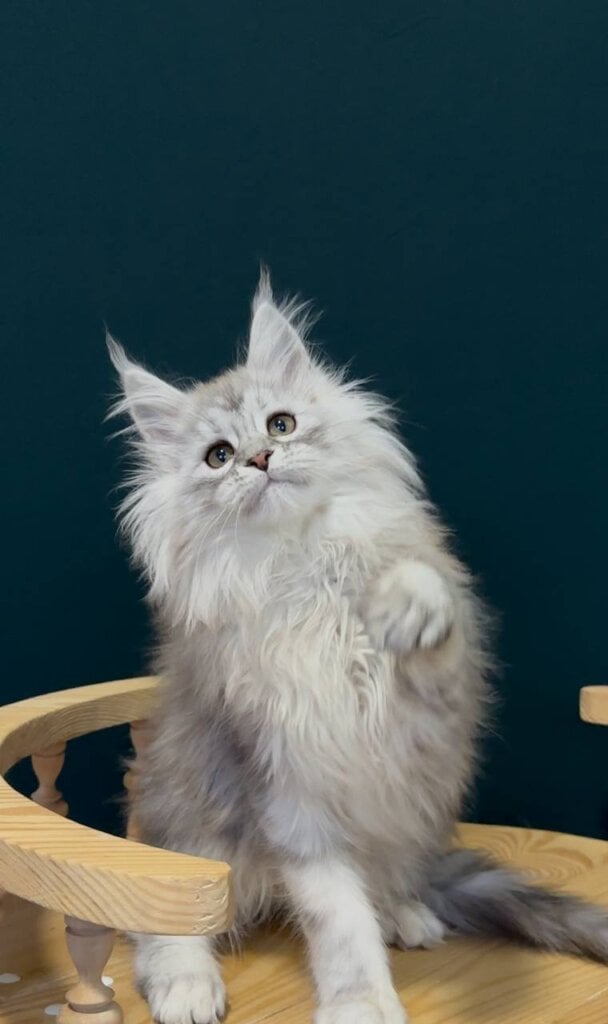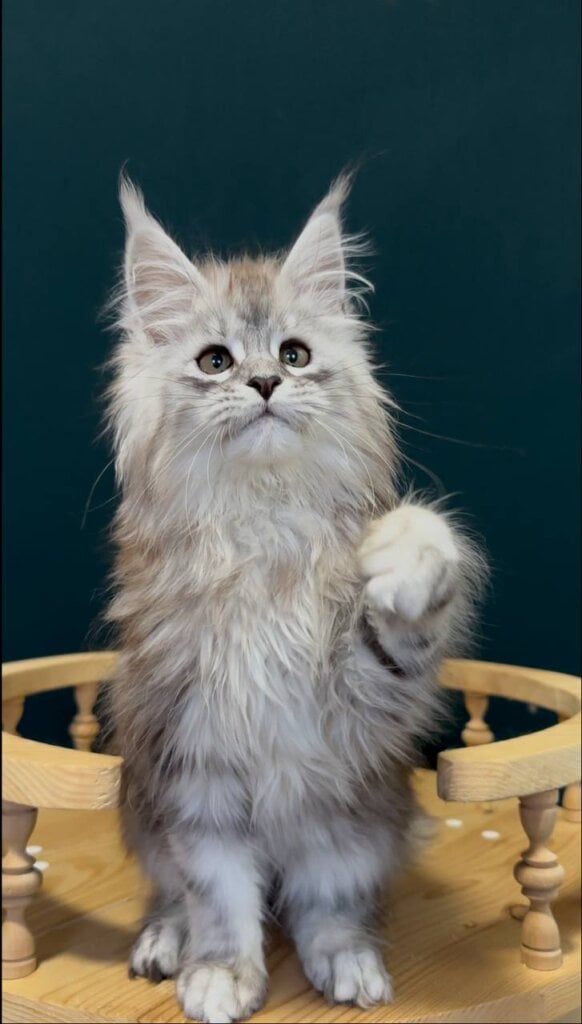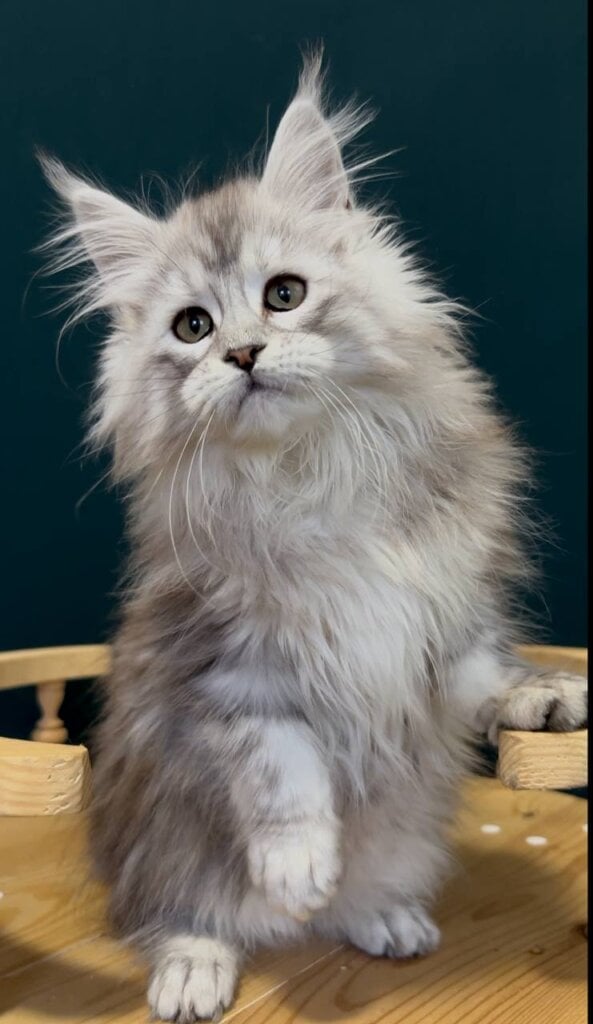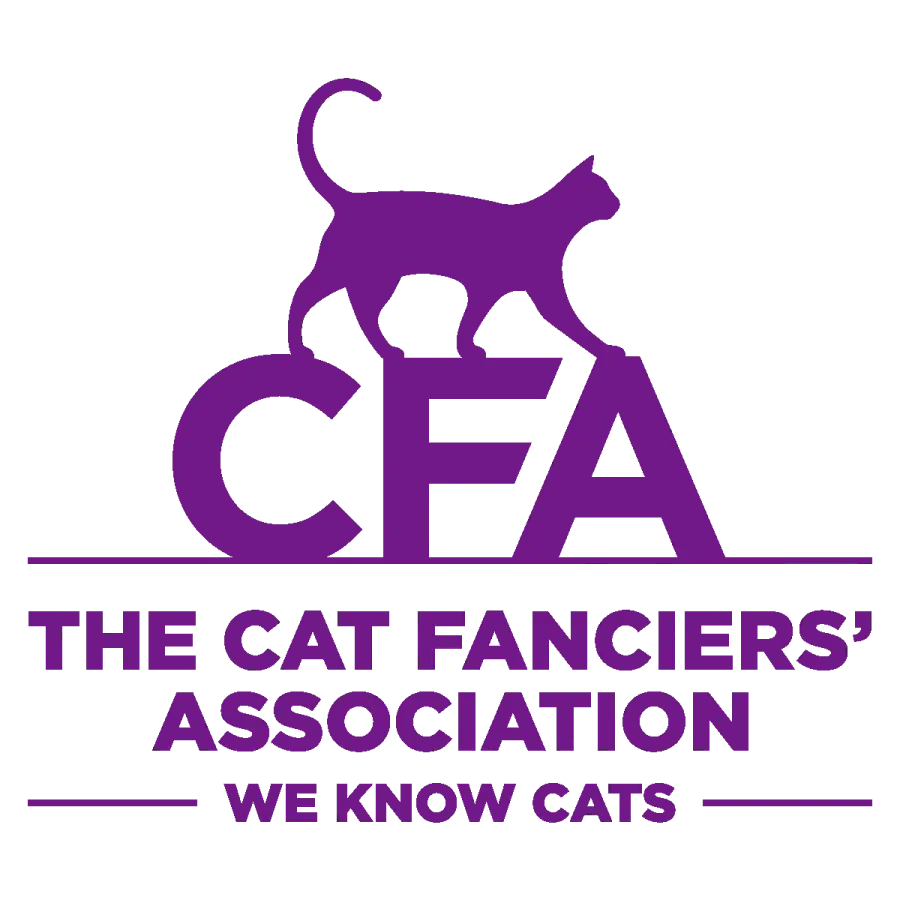Understanding Maine Coon Temperament
Maine Coons are well-known for their amiable, sociable personalities. Their behavior can vary dramatically, depending on their unique past and present situations. Although aggression in Maine Coons is highly unusual, it’s helpful to understand that it can happen in certain circumstances. To help you build a wonderful partnership with these sweet behemoths, learn a little about Maine Coon temperament. Approach behavioral issues with an open mind.
Aggression or fearfulness in Maine Coons may occasionally result from stress or pain. Your Maine Coon may scratch or nip as they knead. This is a frequent occurrence when they are blissful and resting on their human companion’s lap. This isn’t an act of aggression, but rather an exploratory behavior that may accidentally hurt or annoy you.
Maine Coons that are rescued as strays or raised in harsher conditions can be more fearful or aggressive. With enough time and the right approach, these temperaments can usually be adjusted.
Their big bodies, some weighing over 20 pounds, can amplify their mischief. Their huge size hardly makes them aggressive. When it comes to addressing Maine Coon behavioral issues, knowing the reason behind them is half the battle.
Stress-reducing tools such as Feliway, a plug-in diffuser that releases synthetic pheromones, have been shown to be effective in soothing Maine Coons. While it may take several days to months to see results, consistent use over six months or two refills can significantly reduce aggression and create a more serene environment.
So health issues can play a big role in how a Maine Coon acts. Hyperthyroidism, a prevalent condition in the breed, can present as an increase in irritability or atypical aggression. Blood tests, particularly T3 and T4 chemistries, are crucial in diagnosing this disease.
Luckily, when treated, remission rates are as high as 80%, making this condition extremely treatable and greatly enhancing a cat’s overall health and demeanor.
Why Are Maine Coon Cats Aggressive?
While Maine Coon cats can be aggressive, they are typically sweet and loving companions. Sometimes, they can become aggressive. To truly correct this behavior you need to know what’s causing it. This understanding is foundational to creating a positive and friendly bond with your kitty.
1. Identify Potential Aggression Triggers
Aggression in Maine Coon cats can come from multiple sources, just as how we all have our “off days.” Even something as slight as dropping food during a meal could indicate that there’s some anxiety or frustration brewing underneath.
If your Maine Coon is aggressive at mealtimes, it could be because it feels this way or under pressure. This behavior is usually a reactionary response to its feelings. Observing patterns in their behavior helps identify these triggers and provides clarity on what might be causing distress.
2. Explore Genetic Predispositions
Although Maine Coons are not usually aggressive, genetics can play a role in their behavior. Cats from certain bloodlines can be more prone to protective or assertive temperaments.
Working with responsible breeders is paramount. They focus on temperament testing, which greatly decreases the likelihood of adopting an aggressive cat.
3. Consider Early Life Experiences
A lack of socialization during kittenhood can create behavioral challenges. Maine Coons require daily engagement with people and pets.
Without this necessary exposure, they will become aggressive from being scared or not knowing what’s going on. Early socialization of kittens helps them develop the confidence and skills they need to adapt to new situations.
4. Rule Out Underlying Health Problems
Health problems like hyperthyroidism, diabetes, or kidney failure can lead to sudden behavioral changes, including aggression. Periodontitis or arthritic pain can make them irritable, too.
Routine veterinary care is essential for spotting and treating these issues early.
5. Evaluate Environmental Stressors
In addition, any changes to the environment such as new furniture or guests may startle a Maine Coon. Their sensitive disposition allows for the slightest upset to push them towards aggression.
Providing a calm, predictable and stimulating atmosphere lets her relax and lowers tension.
6. Recognize Territorial Instincts
Maine Coons, as with all cats, are territorial by nature. Items like toys, beds, or food bowls can trigger territorial behavior and become points of aggression.
Avoiding competition by ensuring that shared spaces and resources are handled properly can help mitigate this issue.
7. Assess Overstimulation Factors
If you’ve overstimulated a Maine Coon through too much petting or vigorous play, they might strike in response. Understanding their boundaries and being cognizant of tail flicking can help avoid these occurrences.
8. Understand Boredom’s Influence
For example, a bored Maine Coon can show aggressive behavior because of excess energy. Offering interactive, stimulating toys, like climbing trees or puzzle feeders, will keep them mentally and physically stimulated.
9. Analyze Fear and Anxiety
Fear-driven aggression usually comes from sudden changes, like when they are put into a new environment or hear loud sounds. Gradually introducing new experiences and offering a safe retreat can help reduce fear-induced behavior.
10. Investigate Hormonal Contributions
Aggression may be aggravated by hormonal changes, especially in unneutered or unspayed cats. In addition to preventing unwanted kittens, spaying or neutering your Maine Coon can help stabilize their mood and behavior.

Recognizing Aggressive Behaviors
Having a thorough understanding of Maine Coon cat behavior is essential for keeping them happy and healthy. Like all these cats, they’re the sweetest, friendliest cats you’ll ever meet. They can be aggressive in some circumstances, almost always as a result of other problems. Identifying these behaviors early on will help you address problems before they become serious. This proactive approach is a win-win for both cat and human family members.
Maine Coon aggression, while rare, can show itself in different forms. Other cats will take shelter beneath couches or beds when they are scared. Some animals are more overt in their expression of fear, hissing, growling, swatting as acts of aggression. Territorial instincts are a factor too. Any toy or item may set off a Maine Coon’s protective instincts.
As a result, they might misinterpret these things as threats to their territory or property. By looking for these behaviors, you can figure out what may be stressing or upsetting your cat’s environment. Health problems are another key consideration. A sudden change in behavior, including aggression, is often a sign of pain or illness.
If you notice that your cat is in danger, don’t hesitate to intervene. Signs such as dropping food continually while eating or displaying physical distress are indications to seek veterinary assistance right away. Timely intervention addresses the elephant in the room. It can equally result in great progress, with rates of treatment success ranging from 20% to as high as 80%.
Routine medical exams and tests can help find early signs of disease and keep you and your loved ones healthy and safe. Reproductive status can further shape behavior. An unspayed or unneutered Maine Coon may show aggression from hormonal changes or territorial behaviors.
Plan a trip to the vet to talk about spaying or neutering your pet. This will lead to less aggressive behaviors and a more relaxed personality. When rehoming is the only option, do it responsibly. Choose a no-kill shelter or a no-kill oriented rescue group to make sure the cat is placed in the safest, most appropriate environment possible.
Kitten Biting: Normal or Problematic?
For Maine Coon kittens – and for all felines, really – biting is a completely normal behavior that is rooted in instinct. First time pet owners are especially vulnerable to worry about their pets’ behaviors. Knowing the why and the how behind these actions is key to solving the problem.
Differentiating between playful nipping and problematic biting helps us better support their growth while fostering a safe and happy environment.
Playful Nips vs. Aggressive Bites
Playful nipping is an expected behavior in Maine Coon kittens. When they’re playing, they might nip as part of an overall strategy to imitate hunting, which is a natural predatory behavior for all felines. This kind of biting is more of a love tap and comes along with other playful activities such as pouncing or chasing.
For instance, a kitten will lightly nip your hand while playing a round of “catch the string.” These nips have no malice and are an indication of good communication.
Aggressive bites are more forceful and usually happen if a kitten is overstimulated, feels threatened, or is otherwise agitated. If the kitten goes from you petting it to biting you very suddenly – watch out! That behavior can be an indicator that they’re getting overstimulated or just need a break.
Understanding the distinction between these behaviors is key to addressing them effectively.
Understanding Kitten Exploration
Like human infants, kittens use their mouths to explore the world. Biting hands, feet, or other objects is their means of exploration and learning about the world around them. Like most Maine Coon kittens, they’re a little ball of curiosity and will often find their limits by biting.
This exploration is normal but should be appropriately directed from an early age to avoid unintentional harm. Offering them safe, appropriate chew toys, or engaging them in interactive play sessions can help deter kitten biting behavior and fulfill their desire to explore.
Dominance Display in Young Cats
Sometimes, adolescent Maine Coons will nip to show dominance or test boundaries in their surroundings. This behavior can come out when playing with other animals or even people. For example, a young cat may nip an adult cat’s tail while engaging in some play fighting.
This is a normal aspect of social development. Steady correction and redirection is key. Positive reinforcement, including rewarding calm behavior, goes a long way to teach kittens more acceptable ways of playing and interacting without biting.

Redirecting Unwanted Kitten Behaviors
Maine Coon cats are famous for their docile, sociable disposition. Like any breed, without the right direction and training, they can pick up undesirable behaviors. Redirecting these behaviors early on sets you and your Maine Coon cat up for a peaceful coexistence.
Here, we share some hands-on tactics that sidestep frequent pitfalls and create positive patterns.
Teach Hands Are Not Toys
One of the biggest issues we run into with kittens is they think hands or fingers are toys. To prevent this, we advise avoiding any play with hands and sticking to toys. Choose wand-type toys or small stuffed mice to redirect their attention away from your fingers.
If your kitten starts to bite, disengage from play right away and redirect them to something suitable to chew on. Eventually, through your unwavering reaction, they’ll learn what’s ok and what’s not.
Provide Engaging Toys
Not only are Maine Coons extremely smart cats, but they need to be kept mentally stimulated. Interactive toys like food puzzles or treat-dispensing balls serve dual purposes: they keep your cat entertained and reduce food aggression by slowing down their eating.
Change toys out often to keep the fun fresh. This stops boredom, which is frequently the cause of many destructive behaviors such as knocking stuff off tables or over scratching.
Secure Cords and Wires
Maine Coons are naturally inquisitive, and dangling cords are like catnip to them. To avoid mishaps, keep long, dangling cords fastened with cord concealers. You can cut them shorter, as mentioned above, or tuck them behind furniture to keep them out of reach.
Provide feather toys or climbing towers to fulfill their desires for exploration and play. This helps redirect their attention from harmful items.
Use Verbal Deterrents Effectively
Verbal cues, if given consistently, will help prevent negative behaviors. A strong, but not aggressive, no combined with redirection to their toy or scratching post would be more effective. Don’t yell, which will just scare and stress your kitten.
For example, if your Maine Coon is scratching your furniture, simply redirect with love by taking their paws and placing them on a scratching post.
Apply Positive Reinforcement Techniques
Rewarding your kitten for good behavior is a great training tool. Use positive reinforcement. Reward your Maine Coon with treats, praise, or affection when they use the scratching post.
Give them positive attention when they’re playing softly as well! Positive reinforcement rewards good behavior, but it builds trust and strengthens your relationship.
Socialization: Key to a Well-Adjusted Cat
These gentle giants are known for their friendly and curious nature. This makes them perfect pets for families and singles alike. However, just as with all cats, socialization plays a huge role in their temperament and behavior.
With the right socialization, you’ll have a balanced, happy cat – and fewer behavioral issues to address.
Early Socialization Benefits
It’s very important to start socialization as young as possible. Kittens are learning sponges from 3 to 9 weeks of age. When it comes to a cat’s life, this is the best possible time to get them used to just about everything.
At this stage, getting your Maine Coon accustomed to smooth treatment, fresh noises, and varied surroundings assists them in building assurance. Letting them sniff around a new location can get their curiosity going.
Interacting with other family members and pets will further combat fear or apprehension in adulthood. Early exposure reduces the likelihood of territorial behaviors, such as hissing or urine marking, developing as they mature.
Introduce New Experiences Gradually
Maine Coons are generally naturally curious cats, but it’s important to introduce them to new experiences slowly and carefully. Unanticipated alterations to their home environment can be stressful, and stress can lead to defensive behaviors.
For example, if introducing them to a new space, begin with access to just one room and then gradually increase their access. Then, just like with a new person introduction, let your cat get comfortable while watching from afar, before working to get them to approach the new person.
By gradually exposing them, you’re making sure that they are always comfortable and building their trust rather than their fear.
Positive Interactions with People
Positive reinforcement training is a great way to encourage socialization, too. By rewarding your Maine Coon with treats or affection during these interactions, you’ll teach them to associate people with good experiences.
For instance, praising a cat’s relaxed demeanor when introduced to visitors creates a positive association that reduces anxiety. Daily socialization with household members builds those connections, resulting in a cat who is increasingly loving and trusting as time goes on.
Supervise Interactions with Other Pets
If you’re introducing your Maine Coon to other pets, like dogs or other cats, this should always be supervised. Supervised introductions, such as utilizing barriers or leashes at first, let them acclimate at their own speed.
With gradual socialization to other animals, territorial aggression is lessened and they are able to live with other pets in harmony. With time, your Maine Coon will be more secure, reducing the chances of clashes.
Socialization and Age Considerations
While early socialization is preferable, adult Maine Coons can still adjust given enough time, patience, and consistency. Older cats may need more time to adjust to new experiences or environments, but positive reinforcement and gradual exposure remain effective.
When adopting an adult Maine Coon, you may have to work a little harder. Build safe spaces for them to retreat to while they acclimate.
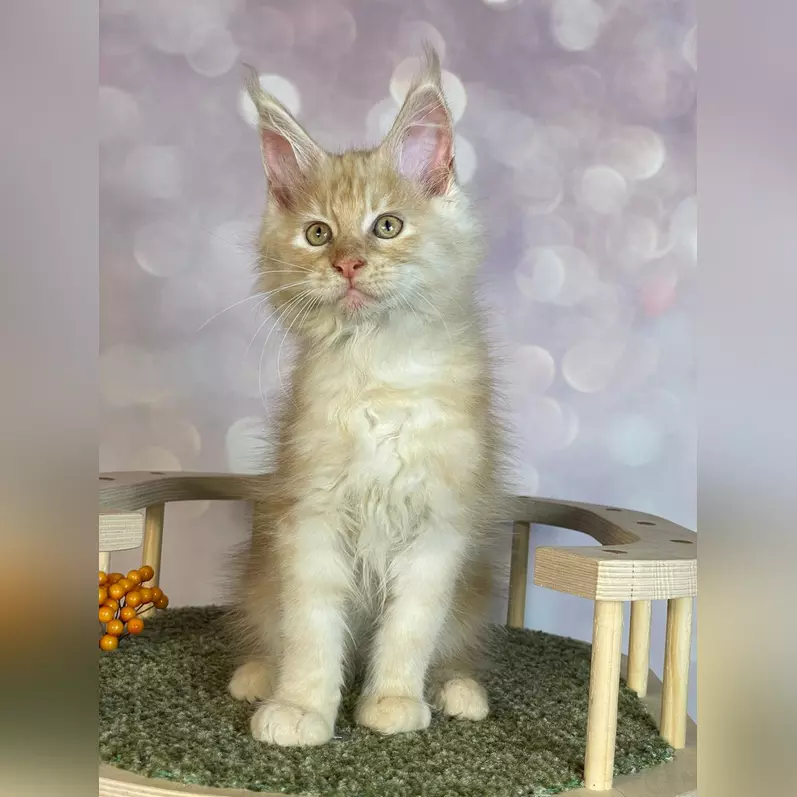
Managing Aggression in Adult Cats
Aggression in adult cats may be due to fear, territorial behavior, or due to underlying health issues. Maine Coon cats are famed for their sweetness. When aggression does show up, it’s important to identify the cause and work to ameliorate the situation.
With consistent strategies and a lot of patience, aggressive behavior can be reduced or eliminated. This in turn makes for a happier cat and human family unit.
Identify and Avoid Triggers
Figuring out what causes your cat to be aggressive is the first step in learning how to prevent it. Triggers may include thunderstorms, noisy appliances, strangers in the home, or other pets encroaching on their turf.
For example, if your cat gets territorial when guests come over, keeping them separated in a calm room will do wonders. This minimizes their stress and minimizes chances for aggressive behavior to build up.
Learn to look for early warning signs, like flattened ears or a twitching tail. This increased awareness allows you to take steps to intervene before aggression occurs. You can distract them and interrupt their aggression by blowing softly into their face or squirting them with a spray bottle filled with water. We promise you that these simple actions won’t kill anything.
Create a Safe Space
Creating a safe space for a cat to retreat to makes a huge difference in a cat’s stress and aggression levels. Ensure this space has their basics, like food, water, a litter box, and a comfortable place to lay down.
To create a calm space, keep it out of your home’s busier areas. A soft-sided bed in a soft, dark corner will give them a safe getaway. A cat tree can act as a safe place to retreat to when they get overwhelmed.
Giving them this space promotes feelings of safety and allows them to calm themselves down and regain control of their emotions. Rewarding calm behavior with treats and praise in this space reinforces positive associations and builds trust over time.
Use Calming Aids
Calming aids – like pheromone diffusers or sprays – can help calm an agitated cat and lower their aggressive tendencies. These products help cats by mimicking natural calming pheromones and are most effective in stressful situations such as relocation or adding new pets into the household.
Treat-based training, including hand-feeding, can further reinforce these aids by building a bond of trust and lowering fear-based aggression.
Consult a Veterinarian or Behaviorist
When aggression continues, working with your veterinarian is essential. In some cases, aggression can indicate an underlying medical condition such as hyperthyroidism or chronic pain, that should be addressed by a professional.
Behaviorists can offer customized strategies to change a cat’s aggressive behaviors. Provided with adequate care, over 80% of cats experience a drastic reduction in aggression – proof that with the right approach, transformation is possible.
Addressing Environmental Stressors
Establishing a calm and orderly space has a huge impact on a Maine Coon’s temperament. A simple intervention can greatly reduce the likelihood of turning towards aggression. Though Maine Coons tend to be gentle giants who are typically more easygoing and sociable, some environmental stressors can play a role in how your Maine Coon reacts. Knowing what these stressors are and how to mitigate them is key to fostering a peaceful coexistence between you and your furry friend.
Provide Vertical Space
All cats, Maine Coons included, are happier and healthier when they are given opportunities to climb. These high spaces let them get the lay of the land from a higher, safer vantage point, lowering stress and anxiety. Having cat trees, shelves, or even just window perches installed can be incredibly helpful.
A Maine Coon may hiss or swat if a person is infringing upon their territory. When you offer them vertical retreats, so that they can go away and create buffer zones and be at peace, they get happy. Vertical spaces are key to reducing conflicts in multi-cat households by providing each cat with a territory to call their own.
Ensure Adequate Resources
Competition for environmental stressors (food, water, litter box) can trigger aggression in cats. This is particularly important during critical developmental periods, like 2-4 months, when young male cats start to develop their social hierarchies. Offering enough feeding stations, water bowls, and litter boxes (one per cat, plus one) prevents many conflicts from even starting.
For example, two cats who are incompatible in personalities will exhibit stress that comes out in growling or swatting. Making sure each cat has access to their own resources lessens that stress and creates a more peaceful environment.
Reduce Loud Noises
Abrupt or loud sounds will make a Maine Coon feel anxious, increasing the likelihood of an aggressive outburst. Cats, by nature, are crepuscular, which means they’re most active at dawn and dusk. During these low-light hours, they might already be on edge.
Avoiding loud noise, particularly at dawn/dusk, can avoid unwanted provocation. Consider gentle background noise. Soft music or white noise can keep the space feeling calm.
Maintain a Consistent Routine
Predictable daily routine gives reassurance to cats by easing anxiety associated with unpredictability. If a recent change, such as a new pet or rearranged furniture, has triggered aggression, reestablishing a consistent schedule can help.
Feeding, playtime, and grooming at the same times each day foster a sense of security. This routine will make your Maine Coon feel more secure and less likely to misbehave.
The Role of Play and Enrichment
Let’s learn more about these gentle giant cats! Please note, they are very sweet and playful, NOT aggressive at all! Like any smart and energetic breed, they need the right mental and physical enrichment to be truly happy and well-mannered.
Ensuring opportunities for play and enrichment is a critical aspect of their overall health and well-being that can mitigate stress-related behaviors.
Interactive Play Sessions
Regular interactive play sessions are key to preventing boredom in your Maine Coon. These cats are enriched by activities that replicate the act of hunting, because it engages their mind and spirit. To build a strong bond with your pet, use feather wands, laser pointers, and crinkly balls.
These toys are the ideal combination of play and activity! Just like our pets, daily play is crucial to their mental and physical wellbeing. It helps combat boredom, which leads to a host of unwanted behaviors.
One great way to do this is by rotating toys in and out to maintain their interest. After a week of patterns with a feather wand, put it up. Then, unveil a very special new enrichment item, such as a swimming robotic fish!
By putting the older toy away for a few weeks first, when you bring it back out it will seem new and interesting again. Including family members in these sessions ensures your Maine Coon gets the attention they crave while strengthening their relationship with everyone in the household.
Puzzle Feeders and Toys
Maine Coons are super smart and puzzle feeders or interactive toys are excellent methods to stimulate their minds. Food puzzles, for example, can mitigate food aggression by slowing down their eating.
Whether it’s a basic maze feeder or a ball that releases treats, enriching their mealtime can provide greater mental engagement and reward. Beyond meal time, puzzle toys that foster critical thinking, such as treat-dispensing cubes or toys with hidden compartments, help woofers stay interested and engaged.
These activities encourage relaxation too since they are redirected from destructive play to exercise and stimulus, which keeps them busy and happy.
Scratching Posts and Trees
Scratching posts and cat trees are important fixtures to add to a Maine Coon’s surroundings. These structures provide for their innate climbing and scratching instincts. A tall scratching post, preferably one with a sisal covering, saves your couch and chairs while giving your cat an appropriate outlet.
Cat trees with multiple levels allow your cats to be playful yet feel secure. They form a terrific roost that further improves their stress levels.
Making them more visually interesting by adding toys and dangling features to these structures will further pique your Maine Coon’s interest, keeping them active and entertained.
Health Issues Mimicking Aggression
To learn more about why Maine Coons are aggressive, we need to look beyond their aggression itself. We need to investigate any underlying health issues that might be at play here. Pain or other medical conditions can significantly impact a cat’s mood and responses.
This can occasionally lead to outwardly aggressive behavior that appears out of character. By figuratively peeling back the layers, looking for and treating these health issues, we can usually eliminate or tone down this behavior.
Dental Problems and Pain
Dental health is a vital part of a cat’s health. Health issues like tooth abscesses, gum disease, or oral injuries present a serious source of pain and stress. When a cat is in pain, what does it do?
It views every person it comes in contact with as a threat. A Maine Coon with an abscessed tooth will likely lash out if you approach their face. Unfortunately, many humans could easily misread this defensive display as aggression.
Regular dental visits, good nutrition, and treating problems with teeth and gums right away can prevent this from happening. Cats that show sudden aggression around food or while eating, especially with an aggressive connection to chewing, should be checked for dental issues.
Arthritis and Mobility Issues
As Maine Coons get older, they’re prone to arthritis or other joint-related issues. These conditions result in extreme stiffness and chronic pain, which can result in behavior changes, including aggression.
An arthritic cat might act aggressively if you try to pick them up. They may be very touchy on their hips or back, so take care. Maine Coons are a large breed that requires strict weight control.
You can alleviate some of the stress on their joints through supportive bedding and ramps. Veterinary care, including pain management and joint supplements, can go a long way to relieve their discomfort and improve their demeanor.
Hyperthyroidism and Behavior Changes
Hyperthyroidism, a condition common in older cats, speeds up metabolism and energy levels, sometimes causing your cat to become restless and aggressive. Maine Coons with hyperthyroidism may show signs of aggression or increased irritability.
Research indicates that only 10% of cats with this condition act aggressively. Recognizing signs like weight loss, increased appetite, or hyperactivity can prompt timely treatment, which may include medication or dietary adjustments.
Correcting these kinds of inequities usually goes a long way toward returning peace.
Living Harmoniously with Maine Coons
Maine Coons are sometimes called “gentle giants” – and for good reason. Once you understand their behavior, you’re ready to discover how these majestic felines thrive in varied habitats. That understanding is indispensable in developing a positive, harmonious relationship with Maine Coons.
Read below, as we dive into how Maine Coons do with humans, kids, and other pets in the home.
Understanding Social Manners
Maine Coons are natural-born socialites, and love to spend time with their human friends. They have a cool, chill vibe, so they’re just as happy in a bustling family home as they are in a noiseless abode. These cats are famous for their inquisitive but easy-going disposition.
For instance, instead of jumping in with both feet during new experiences, they sit back and watch to see what everyone else is doing first. This adaptability is perhaps the biggest reason that Maine Coons are among the most popular family pets.
Their social graces carry over to their level of communication. Maine Coons have a lot to say, and they’ll do it with soft, melodic chirps and trills. These quiet vocalizations communicate their desires in a non-intrusive way.
For example, a chirp can signal an introduction or an ask for attention. This unhurried method is in tune with their laid-back personality and builds trust in their bonds.
Interactions with Children
With kids, Maine Coons are extra charming. Maine Coons are good with children. It’s their patient and tolerant disposition that truly makes them the perfect companions for the younger members of the family.
These cats are well suited to bumpiness and brusqueness. They are known for being less temperamental and getting ornery if a child decides to tug on their tail or coat. Rather, they might just disengage and walk away, sidestepping careful dispute resolution.
For households with children, these affectionate and patient kitties can instill a sense of responsibility and empathy in young ones. Activities like grooming sessions or playtime with interactive toys not only strengthen the bond but provide valuable lessons in caring for another living being.
Parents will be reassured by the knowledge that Maine Coons are usually very forgiving and able to adapt to the unpredictable energy of kids.
Managing Multi-Cat Households
Maine Coons get along easily with other cats given their gentle, non-brash personalities. They are not as likely to exhibit dominance-type behaviors, usually choosing to live harmoniously alongside others.
For example, it’s hard to imagine that they are going to fight over space or resources, such as food bowls or lounging areas. The best way to guarantee peace in the multi-cat home is through slow introductions.
Allowing each cat to get used to the other’s scent and presence can help make the transition smoother. Offering enough litter boxes, feeding stations, and warm resting spots reduces the need for competition and encourages a peaceful atmosphere.
